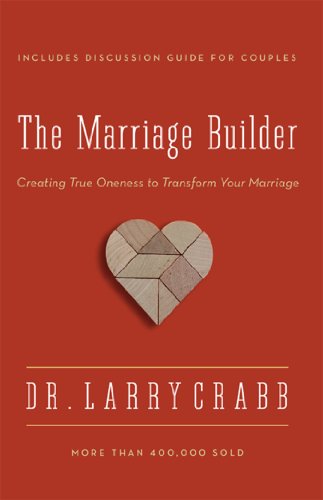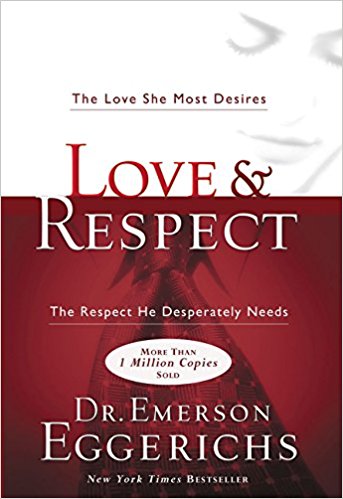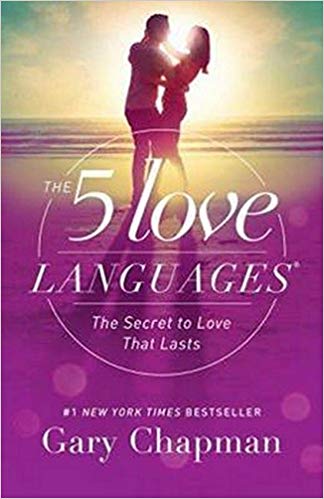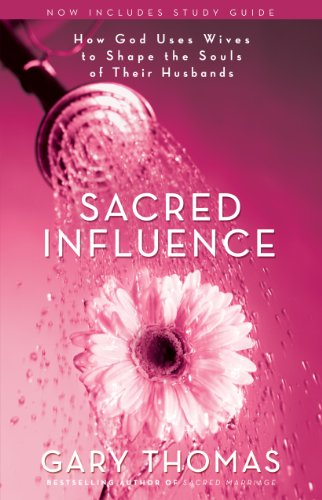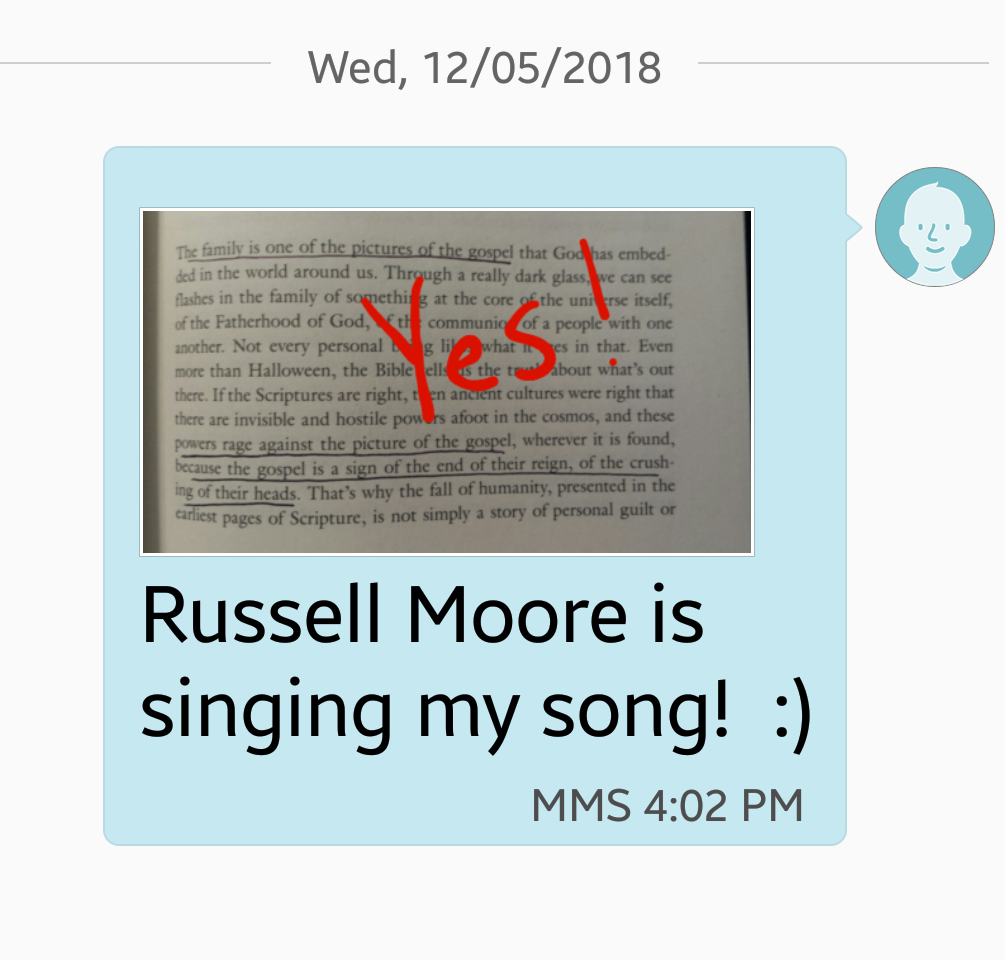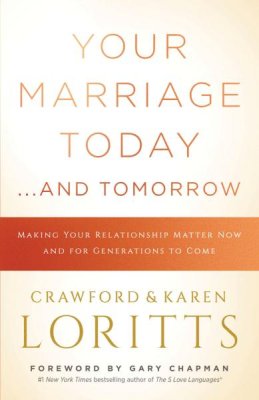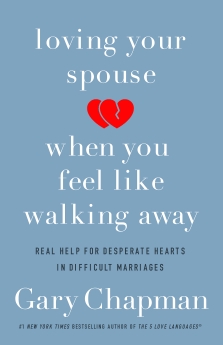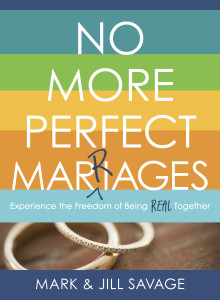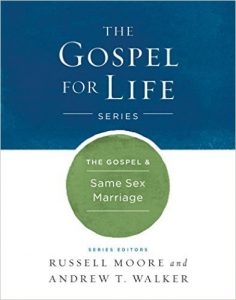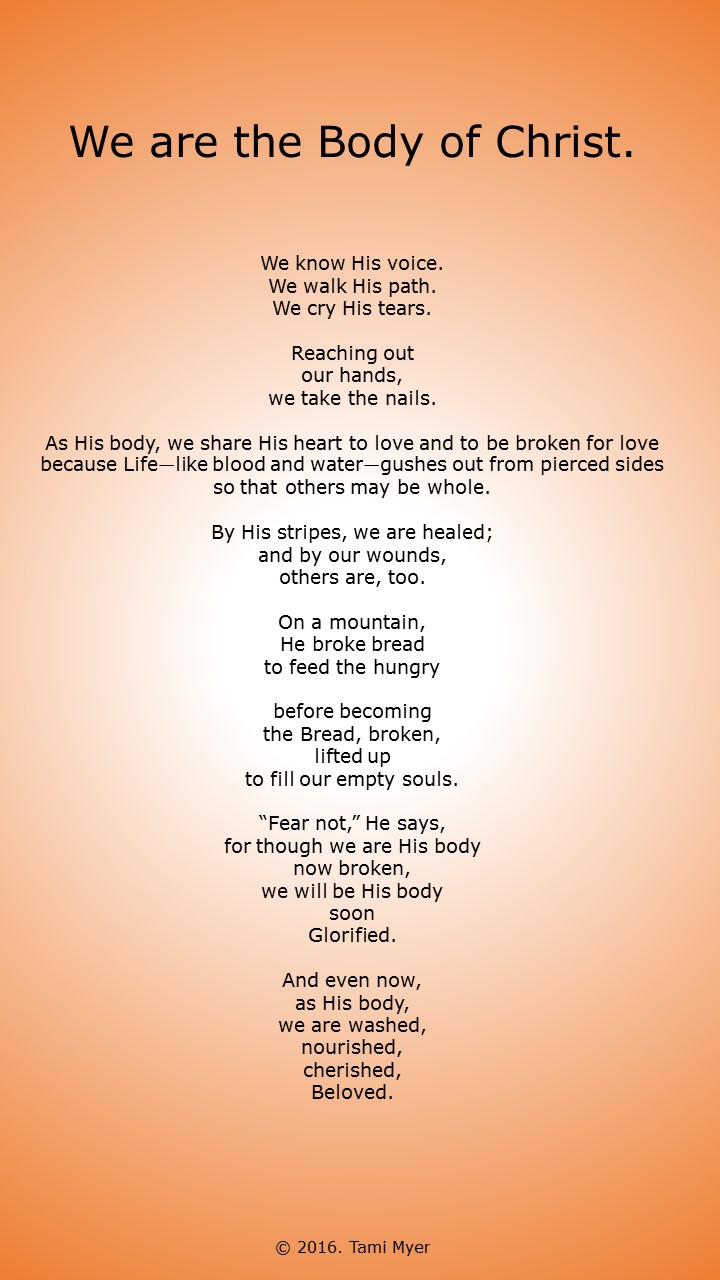
Category: relationships
-
The Maestro of Unity
Dressed in the crisp white and elegant black of a tuxedo, the conductor strides to the rostrum and rises tall before the members of his orchestra, their eyes lifted and their instruments polished and poised.
With every muscle silenced and every ear cocked, the audience holds its breath.
A hush … the slow upsweep of a sure hand … and swoosh!

Violins sing, and trumpets thunder. The unleashed energies of bass and treble weave together in passionate dance. Flutes and spirits soar strong, and climbing notes lift high every heart.
This is the throbbing desire of God, and this is His promise for all of creation.
The entire cosmos is like a vast symphonic orchestra. One day, every musician will be in place and every instrument will be ready as the Conductor stands tall on the podium. Perhaps He will pause for a deep breath and a soft smile. Then, with every eye on Him, He will hold up His scarred palms, and the music of eternity will cascade its joy. Forever new, rushing like water, the notes will ring glorious, rich, and bright.
Jesus Christ will be celebrated as both Conductor and Composer. He will be praised as the awesome Creator not only of every instrument and every player but of music itself.
Designed for Unity
This has always been the plan of God: to bring together every piece and every person from every realm into one harmonized song.
God has now revealed to us his mysterious will regarding Christ—which is to fulfill his own good plan. And this is the plan: At the right time he will bring everything together under the authority of Christ—everything in heaven and on earth. (Ephesians 1:9-10, NLT)
Before the beginning and beyond the beginning, God is eternally One. In the profound mystery of the Godhead, each Person of the Trinity is gloriously distinct and personally relational within one divine nature and one holy essence. Gorgeous diversity coalesces within perfect union.

And then, in the beginning, this one God created an immense universe, teeming with color and music and life. God’s creative joy exploded into an abundance of diversity synchronized into cohesion: one color wheel hosting an infinite number of colors; one musical scale accommodating an unending profusion of song; one sound spectrum pulsating with endless possibilities of amplitude and frequency.
In the midst of this interlaced marvel, God placed a man and a woman at a critical juncture. The Creator joined the diversity of male and female into the oneness of marriage. The Conductor gave this couple a melody and a harmony to sing. Together Adam and Eve flourished in this universe of coordinated complexity.
Falling Apart
Together they thrived until the day their ears snagged on strange whispering from the forbidden tree. Can you really trust this Conductor? Something was threatening to push out of place, like a squirming piece of yarn in tight-knit fabric. Is He truly good? As the thought snaked through their souls, the tempting yarn begged to be pulled, and the man and the woman yanked. Together, they pulled themselves apart, both from their God and from one another.
In pulling the thread and rejecting their God, Adam and Eve chose relational separation instead of connection, and the entire universe unraveled, falling out of alignment and out of tune. It was like snapping the strings on a harp or warping the reed on a saxophone.
This then is the big picture that we are slow to see and quick to forget. God designed us to create music in our lives and to glory in that song; but music happens only through connection with the Creator, the Composer, and the Conductor.
Reunited
If we reject God’s offer of reconciliation, we will squawk sour notes of dissonance and disappointment. We will eventually lose not only the ability to sing and harmonize but even the desire. But when we turn around to connect with God, He will restring our broken instruments and reserve our seats in the orchestra. And, oh, how our hearts will thrill forever to the symphony of God!
-
Shedding Our Shame
Since the day Adam and Eve hid from God, shame has been a problem in our relationships. Not only can Jesus Christ remove the guilt of our sins, but He also knows how to rescue us from shame.
——————————————————————————————-Shame is a Shroud
Shame is a shroud
that suffocates our souls
and hobbles our heels.Covered,
hiding,
we know we are exposed.This unshakable shame
sucks life from spirits
like marrow from a bone.Who will rescue us
from this wretchedness?There is Only One
who felt that piercing of heel,
that draining of life,
that draping of shame,
swallowing the dregs of the cup
and drawing it all into Himself beforebreathing
the shame undone,
the curse reversed,
and all things made new.Let us lay our hands
on the head of the Lamb.
Let us shed all shame
onto this Sacrifice
who willingly wears
our twisting of thorns
and dies
under the weight of our shroud,
a death-wrapping
forever
left
in an empty tomb.The shroud discarded,
His glory displayed
for the joy of all creation,for our shame is undone,
the curse reversed,
and we have been made new.© 2016. Tami Myer
-
Take Your Marriage Back from Porn

“How to Take Your Marriage Back from Porn” is the subtitle of Fight For Love, a new book by Rosie Makinney. I was excited to read this book; and after reading it, I was super excited to share it! There has been a desperate need for a resource that will encourage women whose husbands are caught in porn addiction. We have needed a book that will give these wives hope, courage, and practical guidance. I think Fight For Love will do just that!
However, I do have a concern about this book that has dampened some of my initial enthusiasm. Can I recommend a book and give a serious caution at the same time?
First, let me tell you what I love about this book. Then I will share my concern, and I will explore that topic with the help of my friend Dr. Jessica McCleese, a licensed clinical psychologist and certified sex therapist (www.BeFullyWell.com).
What I Love about This Book
Even when only one person in a marriage is using porn, Satan knows how to destroy both the husband and the wife with that one stone. The husband may be the one caught in a sexual addiction, but the wife is often trapped in a stranglehold of despair, fear, and deep hurt. She feels inadequate to satisfy her husband sexually, and she also feels inadequate to forge a healthy path forward for either her husband or herself.

Rosie Makinney Rosie Makinney does a fantastic job of speaking truth and life into a wife’s wilting and wavering soul! It is Rosie’s healthy perspective that excites me about Fight For Love. Rosie recognizes that fighting porn is a battle worth waging and that it is a winnable war. But even as Rosie encourages wives to fight porn, she urges them to focus on their own journey into the emotional and spiritual thriving that is found only in Jesus Christ.
Here are some quotes from Fight For Love that I appreciate:
By relinquishing your attempts to control your husband and focusing instead on obeying God, you will not only relieve yourself of a massive burden, but you’ll also set your compass to actual recovery. (43)
… the only person’s reaction you can control is your own, and the only one who can convict is God. Be courageous, be calm, be kind, be firm. (44)
At some point into recovery I realized that the goal was not just about helping my husband get sober from porn and healing my marriage. The truth is, God brought me on this journey for me to heal me from [unhealthy] ways of thinking. . . . God wasn’t just stepping on my head to deal with my husband. He was taking me through all this for me too. (107)
That is a life-changing truth! We do not need to resent the failures of our spouses because God promises to turn curses into blessings for us because He loves us (Deuteronomy 23:5). God knows how to take the very thing that the enemy hopes will destroy us and use it instead to prosper us (Genesis 50:20). Let God do that for you!
Whether my husband got better or not, I could still work toward becoming healthier. … Being stuck in my victim role, dependent on Mark for my happiness, was making me angry and depressed. But choosing to align myself next to him on a parallel healing track felt purposeful and hopeful. (111-112)
I don’t need the relationships around me to be perfect in order to be okay; I don’t need everyone to keep their act together for me to keep mine together; I don’t need to control you for me to be happy. My ‘okayness’ truly comes from the Lord and not my circumstances . . . . My dependency is on God alone, which frees me to interact with others in love instead of in insecurity. (121)
That is a truly Biblical perspective! When God is our Need-Meeter, we can succeed and flourish wherever God assigns us, and we can minister joyfully to the people that God puts around us.
So, remember, when that little voice whispers in your ear that you aren’t strong enough or brave enough to go through this process, plead guilty and point to Jesus. . . . Yes, you are broken and terrified. . . . But remember: you are not doing this in your strength. Your hope is in the Lord. Your ‘help comes from the LORD’ (Ps. 121:2). The Lord God Almighty is on your side, and He will be victorious through you. For ‘with God all things are possible’ (Matt. 19:26). (139)
My Concern about This Book
Rosie devotes one chapter in her book to “the tools of recovery.” I agree that the principles of honesty, accountability, and support are very important components of successful recovery. However, some of the steps which Rosie mentions require the careful guidance of a trained counselor or therapist, and this should probably be communicated more clearly.
Rosie does say that the first tool, disclosure, should not “be attempted without the supervision of an experienced third party” (67). This same caution needs to be given for the other tools of recovery, such as the tool of celibacy.
Rosie writes: “Against the typical advice you may get …, a period of celibacy is highly recommended at the beginning of recovery. . . . The suggested time frame for celibacy is normally ninety days” (80, 81). I understand that in some situations, with professional guidance and support, this tool can be useful. But I am concerned that readers may try to use this tool on their own, only to find that it did more harm than good.
But I am not a sex therapist, so I called my friend Dr. Jessica McCleese, who is a certified sex therapist, as well as a licensed clinical psychologist (www.BeFullyWell.com). She confirmed that the tools of recovery discussed in Fight For Love can be very helpful but definitely require professional supervision.
While Dr. McCleese shared my concern about the recommendation of celibacy, she was even more concerned about the potential harms of unsupervised disclosure (which Rosie acknowledges). Dr. McCleese explained that details can be shared in disclosure which cause long-term damage and increased emotional pain. A trained therapist can filter the disclosure details so that what is shared is ultimately helpful and supports healing.
Other Things I Like about This Book
Rosie also includes a chapter to women who are struggling with porn themselves, as well as a final chapter with some excellent resources on porn-proofing children.
I am very thankful that Rosie Makinney is giving women hope and courage in this critical battle. I am thankful, too, for her encouragement to create supportive groups, to fight porn together within local church bodies, and to be vigilant on behalf of our children.
Book Giveaway

If I may give a caution about using the recovery tools only with trained supervision, I believe Fight for Love can be a great encouragement to many. In fact, Manna For Marriage is giving away 3 copies of this book.
If you would like to enter your name in the giveaway contest, simply leave a comment below and share this post. Three names will be selected at random on June 9, 2020.
Blessings to you,
Tamipromotional images for the new book:
-
Encouragement for Hurting Husbands
“Some of you will rebuild the deserted ruins of your cities. Then you will be known as a rebuilder of walls and a restorer of homes.” (Amos 9:11, NLT)
I know that you are asking God to fulfill these words in your marriage, and I earnestly join you in that prayer, believing that God’s heart is strong for healing and reconciliation. But I also know that at this moment, you sense only cold silence and closed doors.
I want to encourage you that you are not alone in your pain, God is not discouraged, and His plan for your life is not in tatters.
“We are hard pressed on every side, but not crushed; perplexed, but not in despair; persecuted, but not abandoned; struck down, but not destroyed.”
(2 Corinthians 4:8-9, NIV)God is not limited by your emotions. You can feel low and yet have strong faith. As you set your will to follow God, He works powerfully through your yielded spirit.
“Therefore, since we do hold and engage in this ministry by the mercy of God …, we do not get discouraged (spiritless and despondent with fear) or become faint with weariness and exhaustion.”
(1 Corinthians 4:1, AMPC)I pray that the following five truths will strengthen you today.
1. God’s mighty purposes for your life and your marriage are not thwarted.
“I know that You can do anything and no plan of Yours can be thwarted.” (Job 42:2, HCSB)
God is still using your marriage to draw you closer to Him. The Spirit is still using you to show those around you what God looks like. You have the opportunity to reveal God as a forgiving God, full of generous grace, unfailing commitment, and unconditional love. In fact, it is when our marriages are difficult that we are most able to demonstrate these awesome attributes of God.

* And when our marriages are difficult, we are often able to see our own hearts better. When a spouse is warm and supportive, we may believe that we are more loving than we really are. “You scratch my back, and I’ll scratch yours” is usually a pleasant transaction, not a self-denying sacrifice. But when we serve a spouse without receiving appreciation or even acknowledgment, then our inner responses reveal our true motivation.
As others have pointed out, when we are treated like servants, we quickly learn whether we have servant’s hearts or not! When we are not receiving positive feedback, we have the privilege to serve purely for the sake of love.
(Continue reading HERE at StartMarriageRight.com.)
*Photo by FreelyPhotos from StockSnap
-
12 Choices for An Extraordinary Marriage (Part Two)

I invited my friend Kristen Hogrefe to share some of her insights into marriage as she and her husband recently celebrated their first wedding anniversary. (Learn more about Kristen’s talented writing and her award-winning novels at the end of this article.*)
In this two-part series, Kristen explains 12 choices that create extraordinary marriages.
Whether you are a newlywed or a seasoned spouse, practicing these guidelines will be a blessing in your home!

by guest writer Kristen Hogrefe Last week, we saw six choices that can help make our first year of marriage—or any year, for that matter—extraordinary. Today, we’re going to look at six more. Whether you’re engaged, newly married, or married for decades, we can all start today, by God’s grace, to make our marriages the best they can be. (Read Part One HERE.)
#7. Be interested in what interests your spouse.
James tells me he’s read more books since meeting me than he has in the rest of his lifetime. That’s a credit to him for wanting to care about something that interests me. On the other hand, I’ve gotten into mountain biking because of him and really enjoy off-road biking now.
I’m not saying you have to change your interests because of your spouse. Instead, you should expand them so that you each spend more time with your spouse doing something important to him or her. The impact on your relationship will be the best return you can make on any time investment.
#8. Encourage time apart.
Some couples become so absorbed in each other that they completely lose their identity and their friend groups, which is entirely unhealthy. You are still two people. Even though you have mutual friends and are each other’s favorite person in the world, he needs some time with the guys, and you need girl time. James has been wonderful about encouraging me to take a night out with my friends, and I’ve encouraged him to do the same. We’re both better for it.
#9. Always give more and never keep score.
Try to “out give” each other. This is a challenge I’m striving to practice. It means buying the brand of Fig Newtons he likes (even though I don’t) or putting his favorite chocolate chip cookies in the oven “just because.” It means looking extra special just for him or finding a fun way to surprise him.
Secretly, I suspect James is practicing on me too. The other night, my stomach was upset, and even though we had both gone to bed, he offered to get up and get me some Tums and something to drink. (I didn’t want to get up, and I imagine he didn’t either.) But he did. Because loves cares about upset tummies.
A marriage of two givers is a beautiful thing.
#10. Shoot the little foxes before they reproduce.
“Catch us the foxes, The little foxes that spoil the vines, For our vines have tender grapes.” (Song of Solomon 2:15 NKJV)
Solomon used foxes as a metaphor for any subtle little thing that tries to drive a wedge in your marriage. He understood that “little foxes” can damage tender relationships. Even the biggest fires start with a little flame.
He said to catch the foxes. I say shoot them dead. I’m more convinced than ever that the Devil hates marriage and wants to stir up strife through any little thing he can get his hands on. She forgot to change out the toilet paper roll? So what. You’d have to replace it yourself if you were living alone. He forgot to take out the trash? Take it out yourself. Don’t let little things become big deals.
One practice that helps is by rehearsing all the kind things your spouse does. If I catch myself starting to complain about something, instead I remind myself, “He is such a good griller. He made me dinner last night.” Or, “I love that he helped me clean the house to get ready for my girlfriends.” Focusing on the positive puts any little annoyances in perspective.
#11. Be your best self.
One of the best gifts you can give your spouse is to take care of yourself physically and stay attractive. You’re doing yourself and your own sex drive a serious favor here too. There is no reason you should gain twenty pounds your first year of marriage, even if one of you is an exceptional cook. Don’t get “lazy” just because you no longer have to fit into a wedding dress.
I’m sorry/not sorry if I’m hurting any feelings here, because I feel so strongly about this point. As the Bible explains, your body isn’t your own any more. It’s your husband’s too (I Corinthians 7:4). He’s equally responsible for maintaining his body and health as well. No matter how you age or what changes your body goes through, never stop striving to be fit and healthy. That doesn’t mean you’ll be a super model, and please don’t even start comparing yourself to someone who looks like one. It just means you’ll be the best version of yourself.
If you find yourself making an excuse right now, put a pin in it and instead ask, “What CAN I do?” Maybe you can join a gym together or keep each other accountable to eat fewer sweets. We all can do something. The key is consistency and accountability.
#12. Have “an anointed adventure.”
When we were doing marriage counseling, the pastor spoke about the need for “an anointed adventure.” In other words, our marriages should be about something greater than ourselves. He challenged us to think about what that adventure might look like for us.
After talking and praying about it, James and I discovered ours. We want to love people well and have a home that feels like a haven or a welcoming place. Our dream is to one day live on a lake and create our own “retreat” environment. I’m not sure when that dream will be realized or what it will look like, but we’re practicing hospitality where we are right now.
Every couple’s anointed adventure will be different, so don’t compare yours to someone else’s. Remember that God gifts everyone in different ways. Also remember that you and your spouse can still minister separately as well, but choose at least one area where you can serve together.
Closing thoughts
Looking back over our first year together, I almost feel the need to pinch myself at how wonderful it’s been. I want this joy to be yours too, and I hope some of these ideas will help. Of course, difficult times and disappointments will come and probably already have, but let’s always remember how blessed we are to have our spouses. They are a gift. Let’s treat them that way.
What other choices and intentional investments have made a difference in your marriage? Please comment and share!

*Kristen Hogrefe is an award-winning author and life-long learner who enjoys starting her day with Jesus and coffee. Kristen and her husband live in Florida, the perfect setting for their many outdoor adventures.
Connect with Kristen at www.KristenHogrefe.com, where she challenges young adults and the young at heart to think truthfully and live daringly.
-
Core Strengths for Marriage (Part Two)
Although every marriage is different, there are four concepts that add immense strength to any marriage. Last week, we looked at the strengths of honor and attentiveness (HERE). Today, we examine two more of these core strengths.
3. Commitment. Many people think that the most important “C” in marriage is communication. Communication is important, certainly, but I think that commitment is even more essential.
When you and your spouse are committed to one another, you gain a firm platform under your feet that allows you then to work on your communication or any other issue. Being committed to your marriage means that nothing on earth is more important than your relationship. Of course, you want your obedience to God to be your highest commitment, but your obedience to God motivates and strengthens your commitment to your marriage.
Even after exchanging vows on your wedding day, there are times when it is important to verbalize that commitment. When you and your spouse do not agree on the color of the carpet, it can be helpful to say, “I like the green, but I value you more than the carpet.” Or when you are dealing with something more serious, it can be very stabilizing to say, “This is tough, but I am absolutely committed to you and to our marriage.” Speaking your commitment out loud reminds you both of what you truly value. (Continue reading HERE.)
Today, I am honored to be guest writing again for my talented friend Kristen Hogrefe. Continue reading HERE to learn the essential strengths for any successful marriage (Part Two). You can read about the first two core strengths in Part One HERE.
-
Core Strengths for Marriage (Part One)
Every marriage is unique with its own blend of personality styles, family backgrounds, and life circumstances. Even the “secrets to success” can vary from couple to couple.
However, there are four concepts that add immense strength to any marriage. Relationships that build on these four principles will be resilient and healthy. However, couples who fail to establish these qualities in their homes can expect pain and crisis.
Developing these core strengths will make all the difference in your marriage: honor, attentiveness, commitment, and kindness.
1. Honor. Learn to maintain an inner posture of honor toward your spouse. In your spirit, keep saluting your husband. In your spirit, keep bowing to your wife.
Work on developing this discipline until it becomes your default position. There are no “days off” and no “time out” when it comes to honor. It is the oxygen in your marriage.
Love each other with genuine affection, and take delight in honoring each other. (Romans 12:10, NLT)
Your spouse is created in the image of God. That was true on your wedding day, and regardless of how long you’ve been married, it is true today. And it will still be true on your most difficult days. Your spouse will always be worthy of honor because of the eternal spirit that God created him or her to be. (Continue reading HERE.)
I am honored to be guest writing today and next week for my talented friend Kristen Hogrefe. Continue reading HERE to learn the four core strengths for any successful marriage (Part One).
-
Thank You
If you are working to honor your marriage, then please allow me to say this to you:
Thank you!
On behalf of the entire Body of Christ, I thank you. Your faithfulness in marriage is a gift of strength to all of us. If you are honoring your marriage—whether your marriage is struggling or plodding or thriving—then you are blessing all of us.
Each of our marriages has a significance that reaches far beyond just two individuals. As believers in Christ, we are like a mighty army, vitally connected to one another. When one “soldier” is struggling to hold his or her position, the others do not watch from a distance and say, “Sorry about that.” No, we send reinforcements; we fight together.
And when one soldier successfully holds the assigned position, the entire army cheers because it is a shared victory. The army advances together.

Our marriages form critically important spiritual ground. When one marriage struggles, the Body of Christ must respond as a united team, understanding that when one marriage suffers loss at the hand of the enemy, we all suffer loss.
As you honor your marriage, you are doing nothing less than this: you are strengthening the Body of Christ. Honoring your marriage is not an unseen, insignificant gesture. It has immense, even eternal, spiritual force. Every marriage that reflects obedience to God is a place of victory for all of us.
The marriages of Christ-followers are pivotal factors in the Kingdom of God. Evangelism advances on the platform of Christian marriages. We dare not pretend that our marriages are isolated and private. We must recognize that we have a common enemy, one who aggressively seeks to destroy marriages in an effort to damage the Body of Christ.
We must sound the alarm to one another when we need reinforcement and encouragement. We must be willing to fight not only for our own marriages, but also for the marriages of others, for we are, indeed, members of one Body.
When we have friends who are ready to give up on their marriages, let’s pour out encouragement to them to keep their promises made before God; let’s remind them of the immense value of their marriages. When someone walks away from his or her marriage in rebellion against God, let’s be willing to confront with love and to challenge with life-giving truth. There is much at stake.
In the Old Testament, Nehemiah encouraged the people of God to work together and to fight together as they rebuilt the wall around Jerusalem that had been damaged by the enemy. Nehemiah wrote:
Then as I looked over the situation, I called together the nobles and the rest of the people and said to them, “Don’t be afraid of the enemy! Remember the Lord, who is great and glorious, and fight for your brothers, your sons, your daughters, your wives, and your homes!”
(Nehemiah 14:4, NLT)I want every couple around me to know that I will fight with them for their marriages—fight by encouraging them, by cheering for them, and by kneeling beside them in prayer.
If you are willing to fight with others, let the people around you know that. Remind them that their marriages are worth fighting for, and then join them in that fierce-but-noble fight.
On behalf of the entire Body of Christ, I thank you.
This article first appeared on StartMarriageRight.com.
-

The Love Chapter (Adapted)
1 Corinthians 13*

If I speak to my spouse using tactful “I feel” messages and skillful conflict-resolution strategies, but I do not love, I am like a clanging cymbal or a car alarm that won’t shut off.

And even if I have an advanced degree in marriage counseling and understand the mysteries of why people do what they do and have all knowledge of psychology, and even though I read a mountain of books on relationships, if I do not love, I am nothing.

And though I bestow all my good efforts to fulfill my duties, and though I burn up every drop of energy in being a great spouse, if I do not love, I gain nothing.

Love is patient even when a spouse does not change. Love is kind even when a spouse is thoughtless. Love does not envy someone else’s marriage. Love is not impressed with its own marriage skills.

Love does not save its best manners for company but instead uses its “fine china” manners with a spouse, treating him or her with honor every day. Love does not insist on getting its own way but works to see things from another’s perspective. Love is not irritable or exasperated. (You cannot get its goat!)
Love keeps no record of wrongs because love does not take offense. Love does not see a spouse’s failures or sins as personal affronts. Love knows that a spouse sins against God and against God alone (Psalm 51:4). Love forgives and refuses victim mentality (Proverbs 12:16, Ephesians 4:32).
Love refuses to think resentful thoughts about a husband or wife; instead, love insists on seeing what is good and giving thanks. Love does not delight in any threat to the relationship, but rejoices in what heals and strengthens the marriage.

Love always protects a spouse (his or her ultimate good), always believes that a spouse is priceless and made in the image of God, always trusts the promises of God, and always is confident that God’s grace is deeper than any need. Love never shuts its heart, never forsakes its covenant commitment, and never rejects a spouse.

Love never fails. But prophecies that “you should move on with your life” will fail; the tongues that call your spouse “a jerk” will cease; and the knowledge that “you deserve better than this” will vanish away.

When I was a child, I spoke as a child, I understood as a child, I thought as a child: but when I became married, I had to put away childish things, such as name-calling and pouting and choosing what feels easy.
For now we see through a hazy glass, and there is much that we do not understand about our spouses, about ourselves, or about God’s ways; but then, face to face with God, we will know fully what glorious things He has been doing through our marriages, just as He knows fully how to love us well now.

And now faith, hope, and love remain; but the greatest of these is love.
*adapted from various translations of 1 Corinthians 13, including the KJV, AMP, AMPC, NLT, and NIV
-
(Video) Interview: Brain Science, Joy, & Marriage
What is the greatest motivator in life?
What does brain science tell us about joy?
How can we trigger the circuitry in our brains so that our marriages are strengthened?These are some of the questions that Chris Coursey answers during a fascinating conversation about his new book, co-authored with Marcus Warner: The 4 Habits of Joy-filled Marriages. Chris shares many helpful insights and practical suggestions for increasing the joy in our marriages.
You will enjoy watching this interview!
You can learn more about this encouraging book HERE.
Book Giveaway

If you would like to enter the drawing for a free copy of this book, be sure to comment below (or HERE) by June 23.
God bless you as you build joy in your relationships!
Tami -
How to Increase the Joy in Your Marriage
Do you know the 4 habits that will fill your marriage with joy?
Marcus Warner and Chris Coursey have written an intriguing new book entitled, The 4 Habits of Joy-Filled Marriages.
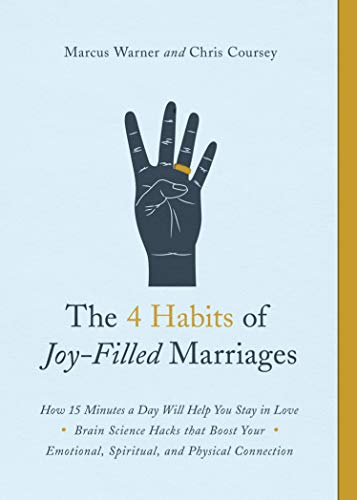
I love the underlying premise of this book: You can build joy into your marriage. Without trying to fix everything in the past, and without trying to control your spouse, you can take definite, positive action to increase the joy in your relationship. How encouraging! Many couples need that kind of hope.
Brain science, joy, and marriage
In this book, the authors explain that recent discoveries in brain science demonstrate how these four habits stimulate joy and build stronger bonds in marriage. The explanations are neither technical nor detailed, but they are interesting and motivating.

Although this book is short and easy-to-read, it includes a separate chapter on each of the four habits, as well as many practical activities for couples to do together. These exercises show “how 15 minutes a day will help you stay in love,” as the subtitle of the book claims. These activities are designed to build connection and boost joy in any marriage—including yours!
The four habits that enhance joy
1. Play together. It is easy to get caught-up in the busyness of married life and to neglect the core of healthy marriage, which is friendship. But if you are willing to be intentional and to invest the time and effort, you can strengthen your friendship … and amplify your joy.

2. Listen for emotion. Truly listening to one another is a great gift in any marriage, but learning to listen for emotions is even more powerful. You can learn to hear your spouse’s emotion, validate it, and then provide comfort (in that order). This is the type of listening that will create the biggest joy-boost in your marriage.
3. Appreciate daily. Even more than saying “thank you,” taking the time to experience genuine appreciation will expand your joy dramatically.
4. Nurture rhythms. Schedule regular times in your calendar to connect and relax with your spouse. “As you learn to start your day relationally, end your day relationally, and schedule regular times for relational connection, your capacity for joy will dramatically increase and your margin for rest will follow suit” (106).

A helpful guideline
The authors repeated a phrase several times in this book which I think is a great principle:
Keep your relationship bigger than the problem.
When a problem is overwhelming your friendship, take time to prioritize your marriage. Tell your spouse that you value your relationship more than anything else. It is usually best to put a problem aside until you stabilize the relationship.
If you would like to fill your marriage with joy, you will love this little book! You will learn that you can change your relational posture and that you can recalibrate your brain to experience greater joy.
A book giveaway

Which of the four habits grabs your attention the most? If you would like to enter the drawing for a copy of this book, leave a comment below by June 23. One winner will be selected at random and will receive a paperback copy of The 4 Habits of Joy-Filled Marriages, compliments of Northfield Publishing.
Coming soon…

Next week, I will be posting a video interview with Chris Coursey, co-author of The 4 Habits of Joy-Filled Marriages, so be sure to watch for that HERE!
Joy to you,
Tami(If you missed the interview with Ron and Jody Zappia as they discussed The Marriage Knot, you can view that HERE.)
-
The Power of a Torn Veil: Tetelestai
“Tetelestai.“
The last word that Jesus spoke before dying on the cross means, “It is finished.” The atoning work of Christ is complete. Our immense debt to God is paid in full.
In Jerusalem
While Jesus was hanging on a cross outside Jerusalem, a thick curtain was hanging inside the Jewish temple. This ornate veil marked a solemn boundary: the curtain was a physical barrier representing the spiritual separation between God and people. Some claimed that this curtain was so thick—maybe four inches thick—that horses could not have torn it apart.

But when Christ died, God tore that veil apart from top to bottom. Through His own torn body, Jesus opened the way to God. He made Himself the door into the heart of God.
In Relationship with God
When God tore the curtain, He was throwing open the entrance into His presence, inviting us all to rich relationship with Him: “Come in, come in!”
Tetelestai. The old covenant is finished.
The old covenant is the system in which we must earn our acceptance. We must prove ourselves. In the old system, there are rewards and relationship for those who keep the rules, and there are punishments and separation for those fail.
But Christ said, “Tetelestai.” The old covenant is finished. We have a new way now, a way of receiving instead of earning.
God gives us relationship. He gives us acceptance. God gives us warm welcome and honor. He gives us unfailing love.

God says to us, “Tetelestai. No more earning. Come in, come in!” What a fantastic thing to hear!
Tetelestai transforms our lives, entirely.
In Marriage
And tetelestai can transform our marriages—entirely.
Very often, we put our spouse in the defendant’s seat while we climb to the judge’s bench. We stay busy and vigilant as both judge and prosecutor. Has my spouse earned my kindness? Has she earned my attention? Has he earned my respect? Has he earned my acceptance?
We feel compelled to oversee justice before providing relationship, so we continually monitor our spouse’s behavior, measure our approval or displeasure, and mete out the consequences. All of these relational transactions drain our energy and dampen our enjoyment. Our marriages begin to carry more duty than delight.
But there is a better way! We can say to our spouse, “Tetelestai! No more earning my love. I give you acceptance. I give you my commitment.”

We are no longer in the courtroom with God. Let’s not live in the courtroom with our spouse.
….. [Continue reading this article at StartMarriageRight.com HERE.]
-
An Interview with Ron and Jody Zappia (video): The Marriage Knot

It was a pleasure for me to interview Ron and Jody Zappia today as they explained “the seven choices that keep couples together.” As you watch this video, you will hear what those marriage-changing choices are, and you will also learn more about the Zappias’ own personal story of a marriage-in-crisis that God transformed as a marriage-in-Christ.
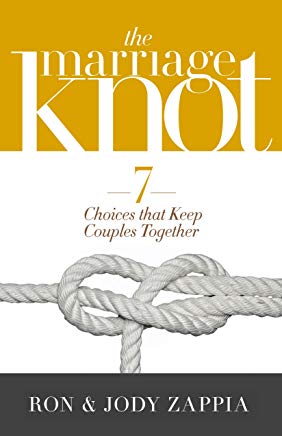
You can read more about all of this in Ron and Jody’s new book, published by Moody, called The Marriage Knot. There is much wisdom in this easy-to-read, practical book, which I reviewed recently on MannaForMarriage (HERE).
I pray that this interview will be an encouragement to you!
An Interview with Ron and Jody Zappia: The Marriage Knot -
A Marriage Q & A (Part Two)
Recently, my friend Kristen Hogrefe asked me several questions about marriage as she prepares for her wedding in just a few days. I was happy to share with Kristen some of the things that I have learned during thirty years of marriage.
Last week, Kristen posted Part One of our marriage question-and-answer on her website; and today, she is posting Part Two. Here are today’s questions from the bride:
Bride: Forgiveness is something couples must generously extend, but, of course, that’s not always easy to do in the heat of the moment. What has helped you to be more forgiving as a wife?
Bride: Do you have any resources you’d recommend to engaged or newly married couples? What are some of the resources you offer on your website MannaForMarriage.com?
To read the article, please continue reading at Kristen’s website HERE.
Have you entered the book giveaway for The Marriage Knot? Learn about this new marriage book and enter your name for the giveaway HERE.
Blessings to you,
Tami -
The Marriage Knot: 7 Choices that Keep Couples Together
Ron and Jody Zappia were still newlyweds when their marriage began to unravel. Stunned by the crisis, they committed themselves to learning how to tie the knot of marriage so that it would hold them together for a lifetime. Almost thirty years of marriage later, Ron and Jody are sharing what they have learned in their new book by Moody Publishers, The Marriage Knot: 7 Choices That Keep Couples Together.
The Zappias learned that the marriage knot is not simply tied at the wedding altar and then forgotten. The knot must be strengthened through “everyday choices,” practices which we can learn from the Scriptures (21). “Choices” is the optimal word here because marital success is based not on the whims of our emotions but rather on the decisions of our will. Love is not something that happens to us; it is something we choose to practice.
The Zappias list seven choices that we can make to strengthen our marriage bond:
- The choice to grow spiritually
- The choice to love unconditionally
- The choice to serve sacrificially
- The choice to please (physically) regularly
- The choice to persevere persistently
- The choice to communicate respectfully
- The choice to bless abundantly
That does seem to cover everything! ?
Ron discusses each choice in a separate chapter. At the end of each chapter, Jody shares a few comments from her perspective. Although Jody’s sections are very short, they are significant contributions to the book.
Whenever I blog about new marriage books, my goal is not so much to critique the writing or even to evaluate the book as it is to glean items that may be encouraging or helpful to you. There is much in this book to do just that, beginning with the title itself and the core premise of the book. It is important for husbands and wives to remember that marital unity must be strengthened every day. We either reinforce or weaken our marriage ties day by day and choice by choice.
Like a three-stranded braid, your marriage is woven together as you move toward God and toward your spouse. You move toward God by trusting Him and obeying Him, and you move toward your spouse by forgiving and connecting.
Here are some “gleanings” from The Marriage Knot:
Introduction
Your “marriage is your greatest tool to be a witness for Christ in this world. It is your greatest testimony to bring other people to a knowledge of God, to introduce His power, grace, strength, and love.” (21)
Choose to Grow Spiritually
Regular “church attendance decreases your chances of divorce anywhere from 25 to 50 percent.” (34)
Choose to Love Unconditionally
We need to “learn to accept the other and live with glaring shortcomings. That’s called loving acceptance. Sometimes marriage is about learning to manage the tension rather than completely alleviating it.” (51)
“If you’re having trouble in your relationship, I guarantee you’re having trouble with forgiveness.” (58)
“Being unforgiving can be like a hot coal in the palm of your hand. The tighter you squeeze, the more it burns.” (58-59)
Even when you can’t trust your spouse, you can still focus on loving him or her. (63)
Choose to Serve Sacrificially
When Satan tempted the first couple in the Garden of Eden, “Adam took a step back when he should have stepped forward.” And Eve “took a step forward when she should’ve taken a step back.” (69)
Men, stop “guilt-tripping yourself for not being the spiritual giant you think you ought to be. Be done with that. Simply commit to do your part in the spiritual growth process and watch God work!” (73)
Choose to Please Regularly
“Satan likes a marriage without sex as much as sex without a marriage.” (96)
“Hopelessness is never from God, only from the enemy, and the withholding of sexual intimacy is what invites the enemy into your struggling marriage. It’s not a good plan.” (98)
Premarital sex tells your partner that it is “okay to have sex outside of marriage.” (106)
Choose to Persevere Persistently
Sometimes God “wants us to remain under life’s weight to produce something in us that we can’t produce in ourselves.” (115)
Choose to Communicate Respectfully
“When it comes to your marriage: your speck is always a log, and your spouse’s log is always the speck.” (136)
“’Be careful with your words: once they are said, they can only be forgiven, not forgotten’.” (137)
Choose to Bless Abundantly
“Prayer is the greenhouse of hope!” (153)
Praying with your spouse “creates an intimacy that precious few will ever experience.” (153)

Moody Publishers is graciously offering a complimentary copy of The Marriage Knot to one reader of MannaForMarriage. If you would like to receive a paperback copy of The Marriage Knot, leave a comment below by March 28, 2019, to be entered into the drawing. (Be sure that I am able to contact you for your mailing address if you win.)
May God bless you as you make the choices each day which will strengthen your marriage knot.
Tami -
A Marriage Q & A (Part One)
Recently, my friend Kristen Hogrefe asked me several questions about marriage as she prepares for her wedding in just a few days. She recognizes that preparing for a lifelong marriage is more important than preparing for a wedding event, as exciting as that is! Having been on this journey myself for over thirty years, I am happy to share some of the things I have learned (and still am learning) along the way.

Here are the first three questions:
Bride: Opposites do attract, and my fiancé and I are no exception! What advice can you give to help us celebrate these differences instead of resenting them?

Bride: So often, I hear, “The first year is extremely hard.” Do you agree or disagree, and why?

Bride: Perhaps because I’m getting married in my thirties, I don’t have the “rose-colored-glasses” view that a teen or twenty-something might have. Instead, I’ve seen enough life and marriage struggles to know marriage isn’t always easy. What encouragement can you offer the new bride?

I am honored that Kristen is sharing her questions and my responses in two guest posts on her personal blog, where Kristen encourages her readers “to think truthfully and live daringly.” The first article appeared on her website today, and Part Two will be published next week.
To read our Q and A exchange, continue reading HERE.
-
Recommended Resources
Life-Changing
Important Basics
Don’t try to do marriage without understanding the concepts in these two highly practical, easy-to-read books.
Other Favorites
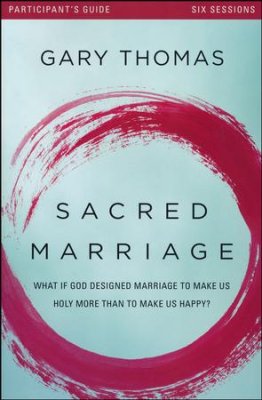
Sacred Marriage 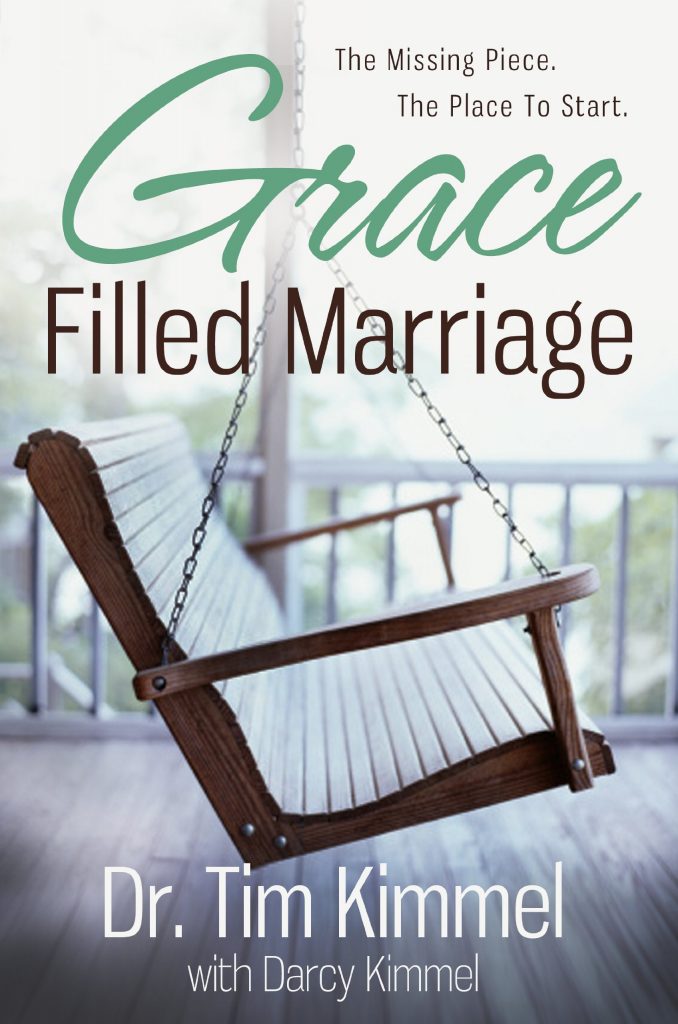
Grace Filled Marriage 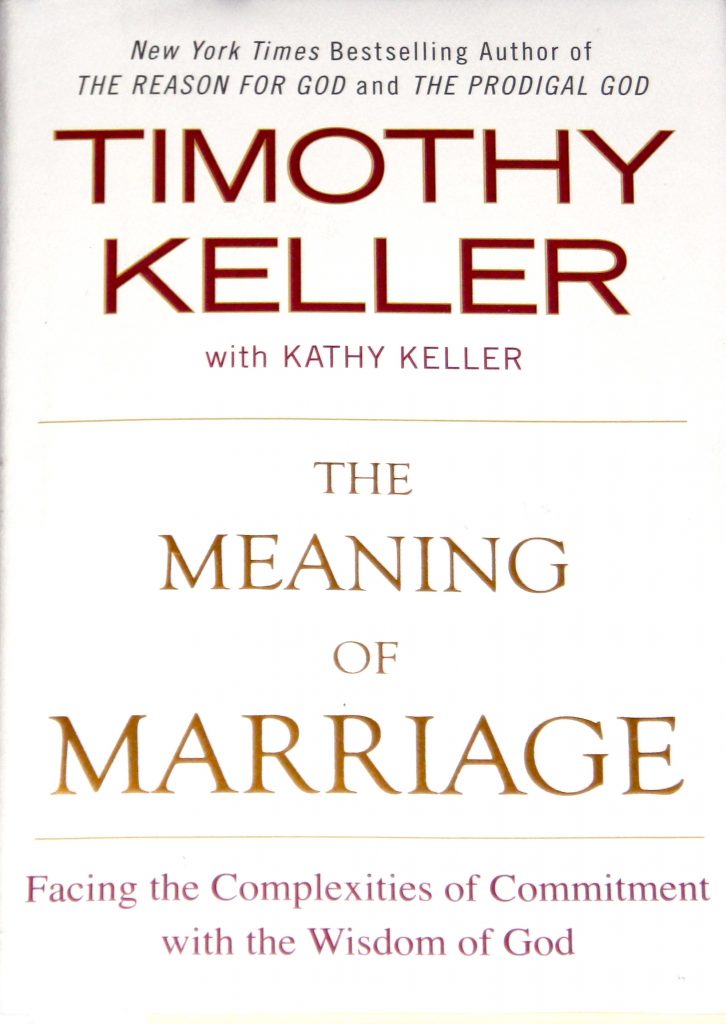
The Meaning of Marriage 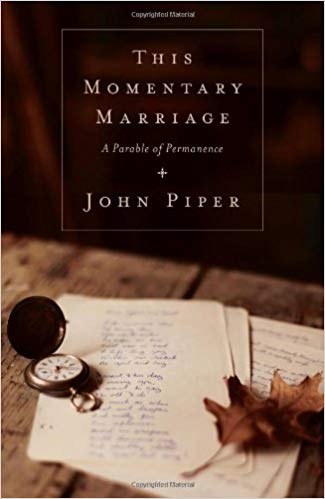
This Momentary Marriage Books for Wives
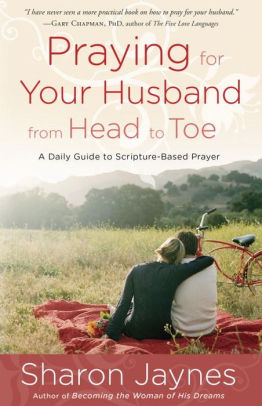
Praying for Your Husband from Head to Toe Free Online Videos
Michael and Cindy Easley have created 11 short videos in which they discuss Biblical marriage, becoming one in marriage, and fighting fair.

Weekend Getaway
You don’t want to miss a Weekend to Remember! Three million people have experienced this marriage getaway, which begins on a Friday evening and concludes at noon on Sunday. These FamilyLife events are held at resort hotels throughout the year (around 100 events each year).
When you attend a Weekend to Remember, you will hear excellent speakers sharing their own stories and teaching on Biblical marriage. You will also enjoy some high-quality time with your spouse.
When you register, be sure to use the MannaForMarriage group code for a $100 discount!
Find your getaway HERE.
-
Peace for the Storm-Tossed Family
Quite frankly, I wasn’t eager to read about “the storm-tossed family.”
But as I began to read Russell Moore’s latest book, I had to restrain myself from bombarding a friend with texted pictures of underlined passages from the book.
You may not be eager to read about the tossing of a storm, but you will definitely want to learn “how the cross reshapes the family,” which is the subtitle of The Storm-Tossed Family. Published by B&H Books, this new book on marriage and family is excellent.
Family as Problem, and Family as Solution
Moore’s opening premise is that just as storm clouds bring life-giving rain as well as devastating floods, so our families can bring to us our greatest joys as well as our deepest sorrows. The same waters that threaten to drown us can become the waters that float our boat.
“The family is not only part of the problem, … but part of the solution” (page 30). Eve’s first son murdered her second, but another Son rescues us all.
God uses His design of family to heal our families. Our marriages and families are torn apart with conflict and cruelty until we are born into God’s family, where we are loved with the lavish affection of the Father and the friendship of spiritual brothers and sisters. Through covenant vows, we receive a glorious Bridegroom, Jesus Christ. We look forward to celebrating at a Wedding Feast and living “happily ever after.”
Family as Spiritual Warfare
Moore recognizes that the family is the battleground for spiritual warfare. Our objective is not escape; it is victory. This is a battle worth fighting, and it is a war we can win.
How then shall we live in our families so that our joys are eternal instead of elusive? How can we navigate our lives so that our burdens are redemptive instead of destructive? The answer is found in the cross. Like the family sometimes, the cross is a place of pain and rejection, but it is also the door to joy and connection.
Living Crucified Lives
A cross-shaped home is an intriguing concept, but it is much more than that. Learning to incarnate the gospel in our own lives is the most important thing we can do. Many see the cross as a relic of the past, but if we are to experience transformation in the present, we must recognize that the cross is our constant pattern for daily living.
How does the cross shape us as children and siblings, as spouses and parents? I think we live cruciform lives in three ways.
1. We live cross-shaped lives as we continually die to our own self-will. Our own will is not necessarily sinful, but clinging to it always is.
2. The gospel transforms us so that we can love others sacrificially: we are willing to suffer for the benefit of another. We are willing to be wounded so that others may be healed. As we suffer willingly and forgive generously, we re-enact the gospel.
3. The gospel renews our thinking so that we can receive our burdens as blessings. God knows how to use the snarled threads in our marriages and families to untangle the knots in our own souls.
God-ordained suffering is always redemptive, which means that God uses it to reverse the curse in the world and in our lives personally. When our spirits are yielded to God, our hardships will always prosper us spiritually. In the Hands of God, our suffering will not deprive us, demean us, or deform us; instead, it will deliver us. It will heal us and enrich us.
The cross of suffering is not an obstacle to joy for those who crucify their self-centeredness there: instead, the cross is the very means to joy. The invitation to pick up our cross (“come and die”) is the invitation to intimacy with God Himself and the invitation to share His joy.
Core Issues
I am thrilled to see fantastic truths about marriage being shared in this book, and I pray that its much-needed message will reach a huge audience. I appreciate Moore’s understanding of the unique partnership within the covenant of marriage, and I am delighted to read his discussions of masculinity and femininity, which are favorite topics of mine. Although I don’t agree with Moore on everything, I recommend this book as one of the best on marriage.
This book does not list “five tips for resolving conflict” or “six things you should never say to your wife.” Those things may be helpful, but they are secondary issues. (For those who are familiar with Radiance, you will understand when I say that The Storm-Tossed Family deals with mattress issues, not sheets.)
The primary issue in marriage is to get our own hearts right and to understand the purpose of marriage. With a sound doctrine of marriage, Moore explains the underlying principles which provide a solid foundation for dealing with secondary issues.
Let me share some great statements from several chapters.
From “Man and Woman at the Cross”:
“Men are warned [in Scripture] … against passivity and refusal to take responsibility…. Women are warned … against signifying a lack of need for the male….” (page 86)
“Headship does not refer to power but to responsibility.” (88)
“Headship will not seem often to the outside world to be ‘being the head of one’s house’ at all. Headship will look, in many cases, like weakness. So does the cross.” (89)
“We are created for cooperation and for complementarity. We do this not through the will-to-power but through the way of the cross.” (94)
“Marriage matters then for everyone because marriage is not just about marriage. Marriage is about the cross.” (95)
From “Marriage and the Mystery of Christ”:
Moore tells engaged couples that “they can’t construct their own vows” because “apart from the rest of the community, they do not know what vows to make. … [T]he primary purpose of covenant vows is not in reference to one’s feelings in the moment but to one’s commitment in the face of the unpredictable and the unimaginable.” (104)
A wedding “is not a party for the couple, celebrating their individualized love. … Those gathered are not an audience but witnesses…. In a Christian marriage, the gathered witnesses are a sign that the church is here to hold the couple accountable to their vows before God. The marriage is not just about the couple but about the gospel. This means the marriage is the business of the whole church.” (105)
“Intimacy means that you love these realities [of your spouse’s strengths and vulnerabilities] … without either taking the other’s strengths for granted or resenting him or her for not having other strengths. Often, the ‘other woman’ or ‘other man’ in a marriage is not a real person with which a spouse is having an affair, but instead is an imagined, idealized husband or wife to which the spouse is constantly compared.” (117)
“Whether married or not, you bear a calling to support and uphold the marriages within the family of God….” (123)
We “will find joy and peace and wholeness in our marriages when we stop expecting marriage to meet all our needs, and start seeing marriage as a war to find contentment in the gospel.” (123)
From “Reclaiming Sexuality”:
“Affairs are usually not about a lack of happiness [in marriage] or a lack of sex. … The devil knows the way to take one down is not through a deficient spouse but through a deficient self” [that is, not finding one’s identity in Christ]. (143, 145)
“Ingeniously, the satanic powers have found a means to direct human erotic energy in a direction that ultimately saps one of erotic energy, and in due time, of the very possibility of human intimacy. The powers of the age will collaborate with the biological impulses to make this seem irresistible….” (150)
“In both artificial Eros and in artificial romance, there is the love of self, not the mystery of the other.” (151)
From “The Road To and From Divorce”:
“How can Christians … speak to issues of social justice and the common good without addressing what is no doubt the leading cause of ‘orphans and widows’ (James 1:27) in our midst? How can we speak … about ‘family values’ while speaking in muted tones on the issue of divorce and at full-volume on other matters?” (162)
“John the Baptist telling Herod he could not have another man’s wife is a quite rare profile in courage in almost any era.” (163)
“The shift in evangelical attitudes toward marital permanence does not seem to have come through any kind of theological reflection or conversation at all. Instead, our approach to divorce seems to have meandered just a bit behind the mainstream of American cultural patterns. … We have grown accustomed to a divorce culture….” (164)
Moore believes that marriage “is to be part of the discipline of the church” (174). He claims that every “marriage that the church solemnizes should be a marriage the church takes as its responsibility” (175). These statements may surprise some readers and will probably raise some eyebrows. I was surprised … and pleased, and this passage raised a cheer from me! It deserved another “thank you, Russell Moore!” text.
Cherish the Blessings
Moore also addresses the topics of children, parenting, family traumas, and aging. In each chapter, he shares clarifying perspective and profound biblical truth.
The book concludes with strong encouragement:
Your family, whatever it is, will bless you, maybe in ways you don’t even notice in the blur of busyness at the moment. Stop and notice these blessings. Listen to what God is telling you through them. … Do not be afraid. … Whatever storms you may face now, you can survive. If you listen carefully enough, even in the scariest, most howling moments, you can hear a Galilean voice saying, “Peace. Be still.” (297)
Thank you, Russell Moore, for writing The Storm-Tossed Family. May a multitude of homes be reshaped by the Cross.
-
The Gospel of Marriage and the Glory of Gender
How significant are individual marriages to the Body of Christ? How important is a Biblical understanding of gender?
Many Christians believe that marriage and sexuality are private issues which often distract us from the more important matter of sharing the gospel of Jesus Christ.
But could it be that when we bypass doctrines of sexuality, we throw out critical evangelistic tools? And could it be that when we embrace God’s gifts of gender and marriage, we create compelling revelations of God?
Revealing God
In the beginning, God sculpted the cosmos as a stunning revelation of Himself. And then, God designed men, women, and marriage to tell us even more about Himself.
God created human beings in his own image. In the image of God he created them; male and female he created them. (Genesis 1:27, NLT)
We know that God is neither male nor female. Yet there is something unique about our being male or female that is unlike that of the animals, for only people are created in the image of God. Imago dei is stamped into God’s design of men, shaping them to reveal the divine attributes of masculinity in glorious ways. And imago dei is stamped into God’s design of women, shaping them to reveal the divine attributes of femininity in glorious ways.
While being male or female is a component of physical biology, masculinity and femininity are components of personal relationship. They are profound reflections of the triune God, whose very nature is rich, full relationship.
Our gender is a divine commission to reveal the greatness, the beauty, and the strength of God in compelling ways. The DNA of our assignment is written into every cell of our body; it is printed across the fibers of our being several trillion times.
“… maleness and femaleness are objectively rooted in biology, and should be valued and affirmed, not rejected or altered.”1
Although we often struggle to flesh out the glory of God in our daily lives, we can embrace this sacred calling to live fully and faithfully as imago dei. This high calling is one which extends to every part of our lives, including our sexuality. Ravi Zacharias points out that when we deny the sacredness of our sexuality, we deny the sacredness of human life itself.2 Although our bodies are physical and temporal, they have spiritual and eternal purpose. Our material bodies are knit with our nonmaterial spirits so that together they share in the dignity and worth of human life.³
Telling the Truth About God
It is the goal of evangelism to tell the truth about God. The psalmist marveled at the power of the natural universe to tell the truth about God:
The heavens declare the glory of God;
the skies proclaim the work of his hands.
Day after day they pour forth speech;
night after night they reveal knowledge.
They have no speech, they use no words;
no sound is heard from them.Yet their voice goes out into all the earth,
their words to the ends of the world.
(Psalm 91:1-4, NIV)Are the voices of God-created gender and God-designed marriage any less persuasive or wide-reaching? First, creation tells the truth about God’s existence and power, and then marriage tells the truth about God’s loving nature and faithful character. When we “preach” this good news through our relationships, we are laying the groundwork for sharing the saving gospel of Jesus Christ.
The Gospel of Masculinity
God initiates the relationship with His beloved, the people of God. At immense cost to Himself, He pursues her; and having won her heart, He commits Himself to her. With self-sacrificing love, He cares for her. He ministers to her needs with gentleness and humility. He desires her, cherishes her, and delights in her.
A man reflects his Creator well when he demonstrates this same faithfulness and nurturing with his own bride. But when men fail to reveal these truths about God, then masculinity fumbles its “good news.”
Because masculinity reflects God, a demeaning of masculinity becomes a suppression of the truth about God. If masculinity does not represent success or trustworthiness to us, then it is difficult for us to see God as Someone we want to imitate or to follow. If masculinity is not great, then God, who encompasses masculinity, is not great, nor can He show us how to be great. When we denounce masculinity, we are left with a God who does not pursue our hearts, does not protect us or provide for us, and does not cherish us.
It is a man’s greatness and significance to tell the gospel through his masculinity. He tells the truth about who God is as he takes action, repels passivity, and carries responsibility for the well-being of another.
This is effective evangelism because we long to know the God of a man who is masculine in these ways. God-reflecting masculinity gives us hope that there is a God who will shelter us with His own life, care for us, and love us well.
We must teach our sons the glory of being men who specialize in revealing God through masculinity. When men do not know the glory of being masculine, they may become violent abusers or passive consumers instead of responsible, self-giving lovers.
The Gospel of Femininity
Femininity is the relational expression of warm welcome and genuine acceptance. A feminine woman shares her strength to build her husband up. As a life-giver, she energizes others. Her honoring, serene spirit is a fragrant invitation to know her God.
Femininity gives us hope that there is a God who will receive us with open arms, who will accept us, and who will support and strengthen us.
We must teach our daughters the glory of being women who specialize in revealing God through femininity. When women do not know the glory of being feminine, they may demean themselves; they stoop to merely flaunting their femaleness. Instead of contributing strength to their relationships, they may compete for control.
The Gospel of Marriage
Through the amazing creation of marriage, God reveals the essence of His nature, which is love. Far more than a feeling, love is the decision to give to another. Love cannot exist within a relational vacuum. Marriage reflects the vibrant fellowship within the Trinity, a union which has eternally accommodated love.
Marriage reflects not only the relational nature of God, but also the diversity and the unity within the Godhead. Only the marriage of one man and one woman can do this. The rich distinctions between the man and the woman are not obliterated in their union; instead, they are celebrated as delights of communion.
Marriage also illustrates the very holiness of God, for marriage is an exclusive relationship. Holiness requires perfect belonging—complete and undefiled. A marriage is holy when 1) the man and woman belong fully to one another as husband and wife, and when 2) nothing is present to defile that woven-together relationship. This reflects the holiness of God, in whom all that belongs is present, and all that does not belong is absent.
Marriage tells the gospel like this:
- To know God, we must renounce spiritual singleness. In order to accept God’s proposal of spiritual union, we must forsake all other spiritual lovers (such as possessions, pleasure, prominence, or power).
- To be in relationship with God, we agree to belong fully to Him as His people, and He promises to belong fully to us as our God.
Christian marriages are designed to be pictures of the gospel. When we keep our vows to love, honor, and cherish, we are telling the truth about who God is.
Marriage reveals that God is a trustworthy, promise-keeping Lover. Our marriages are not merely private affairs, incidental to the great work of evangelism. Instead, our marriages create a platform upon which evangelism advances … or falters.
Strengthening Evangelism
In the disorienting chaos of our culture, we have forgotten our glory as men and women. Many have exchanged the great honor of revealing the Almighty for a self-destroying drive to replace Him.
When we tell the truth about God through our masculinity or femininity and through our marriages, then the world will see this good news:
God loves us.
He sacrifices Himself in order to benefit us.
He welcomes us.
He accepts us.
He protects and provides for us.
He cherishes us.
He keeps His promises.That is a glorious gospel to preach!
———————————————-
1 Ryan T. Anderson. http://dailysignal.com/2015/10/30/houston-ballot-measure-on-sexual-orientation-gender-identity-threatens-privacy-religious-freedom-and-businesses
2 “When you de-sacralize sexuality and the body, you will de-sacralize life itself.” http://rzim.org/just-thinking-broadcasts/india-vision-qa-part-2-of-4-3
³Nancy Pearcy explains this integration of body and spirit in her latest book, Love Thy Body.
-
What is Your Marriage Legacy?
Forty-seven years of marriage can provide a wealth of knowledge and insight, especially when that marriage has been built on biblical principles. Drawing from that rich experience, Crawford and Karen Loritts have written a new book entitled, Your Marriage Today … And Tomorrow. The book emphasizes creating marriages that are so strong today that they give endurance to marriages tomorrow, in the next generation and beyond.
Seeing the Big Picture
Your Marriage Today focuses on the underlying principles of a successful marriage. Crawford acknowledges that he is the “big picture” person in his marriage while his wife is better at the details. Although the book is co-authored by both Crawford and Karen, it is written in Crawford’s conversational voice, and the material reflects his “big picture” perspective.
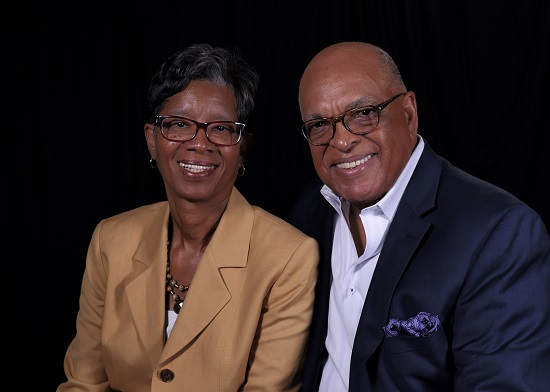
The instruction and insights which the Loritts share are excellent. Their advice is solidly biblical, full of wisdom, and honoring to both husbands and wives. I think readers will be encouraged to see how God has beautifully “knit together” a man and woman from very different backgrounds.
Creating Your Legacy
Crawford and Karen are aware that each marriage leaves a legacy, one that can be painfully destructive or wonderfully life-giving. The Loritts challenge us to think beyond our present moment of busyness. They caution us to be mindful of the long-term consequences of our marital behavior. Through the choices we make in our marriages, we create a profound impact in the lives of those around us and those who follow us.
How we need this counsel!
In our culture, marriages are trashed and replaced as if they were temporary jobs, subject to our personal whims, instead of high callings that God has placed on our lives. Marriage is God-ordained, designed to be God-reflecting and gospel-illustrating. Before we start working out the details of our marriages, we all need to consider the important legacy we are creating.
Whether our marriages last or not, our legacies will.
When Your Spouse Isn’t Working with You
In this book, the Loritts address the husband and wife who are working together to strengthen their relationship and legacy. But what if your spouse is not working with you? What if your spouse is not helping to create a legacy of blessing?
Don’t be discouraged! You can still give your children (and a watching world) a fantastic legacy.
Even when your marriage isn’t healthy, you can be healthy as a spouse, leaning on God to meet your every need. You can give your children the legacy of a promise-keeping parent. When you honor your vows, you give others hope and even confidence that there is a promise-keeping, trustworthy God.
You give your family a wonderful legacy when you model trusting God despite difficult circumstances. What is more valuable than that? You can be living proof that God Himself is the Giver of life and joy.
You can teach your children how to handle disappointments by handing those hurts to God and allowing Him to turn ashes into beauty. What a rich legacy that is! Perhaps most importantly, you can demonstrate how to forgive. That priceless gift will bless your children and their children for the rest of their lives.
Feeding Your Marriage
The Loritts paint a broad picture of the forest, but they do not ignore the trees. They do include some practical advice for the day-by-day work of strengthening marriages. For example, they encourage us to “feed” our marriages by “making consistent, heart-nourishing deposits” in the lives of our spouses (58). They list six specific ways to do that:
- Regularly read the Bible as a couple.
- Pray together every day.
- Lighten each other’s load.
- Identify what refreshes your spouse.
- Serve together.
- Spend regular, uninterrupted time together. … Carve out some time each evening to touch base with each other. Schedule two or three weekends a year to get away as a couple to talk and connect on a deeper level. (59)
That is an excellent list! How many of these habits do you have?
I encourage you to choose one and start practicing it this evening. It will bless you “today … and tomorrow.”
Book Giveaway

Moody Publishers is providing a complimentary copy of Your Marriage Today … And Tomorrow. If you would like to enter the drawing to receive this book, simply leave a comment below by July 23, 2018. I will notify the winner on July 24, and you will receive a paperback copy in the mail.
Blessings to you!
Tami -
Rebuilding Your Marriage When Recovering from Addiction
Today's guest blog was written by Adam Cook, who started AddictionHub.org after losing a friend to substance abuse and suicide. He is passionate about helping people find the necessary resources to save their lives from addiction. Addiction is a disease that affects millions of people around the world. When someone’s drug or alcohol abuse spins out of control and becomes habitual — even compulsive — that addiction consumes their life. It often costs a person a great deal financially, socially, and physically. Personal relationships, especially between spouses, are often shredded. If you made it through addiction recovery with your marriage intact, your work is not done.
Addiction is a disease that affects millions of people around the world. When someone’s drug or alcohol abuse spins out of control and becomes habitual — even compulsive — that addiction consumes their life. It often costs a person a great deal financially, socially, and physically. Personal relationships, especially between spouses, are often shredded. If you made it through addiction recovery with your marriage intact, your work is not done.Post-recovery requires time to heal the wounds and rebuild trust. Your typical aftercare treatment provides tools to help with communication between spouses, including family counseling, 12-step programs (Alcoholics/Narcotics Anonymous), and maintenance medication. However, these are just tools you can use to your benefit.
In the end, the real work is up to you.
Step One: Talk to Your Spouse
 The beginning of recovery is about addressing your needs and figuring out how you can meet them without turning to drugs or alcohol. If you want to rebuild your relationship, you have to communicate with your partner about what they need. Plan an evening or even a whole day where you can spend time together and talk about what they expect from you going forward.
The beginning of recovery is about addressing your needs and figuring out how you can meet them without turning to drugs or alcohol. If you want to rebuild your relationship, you have to communicate with your partner about what they need. Plan an evening or even a whole day where you can spend time together and talk about what they expect from you going forward.Together, you can make compatible goals and establish timelines regarding milestones. Remember to be flexible and patient. Figuring out how to strengthen your relationship takes time and more than a few adjustments. Establishing open communication from the get-go helps create a procedure of operations you can use going forward.
Step Two: Establish a Routine
One of the hardest things for a spouse of an addict is wondering where their loved one is, if they are safe, and if they are even going to come home at all. Establishing a routine provides a sense of security for your partner so they can learn to let go of their anxieties.
Not only does a routine help when it comes to your relationship, it also helps overall recovery. Daily structure keeps your mind and hands busy, which can help alleviate the boredom and inactivity that leads to recreational substance use. Stability also makes transitioning back into the working world easier. Try adding exercise to your daily routine to help kick cravings, balance neurochemicals, and build self-esteem in your recovery process.
Step Three: Engage in Sober Activities Together
When it comes to recovery, your spouse doesn’t just want you to talk the talk — they want you to walk the walk. You have to show your spouse that you are willing and ready to make amends by living a sober life and including them in it. Make sure to give them plenty of advance notice, and work with their schedule to show them that you value their time.
Chances are, you have gone through difficult times as a couple. This is your opportunity to give each other a brief respite from arguing and crying. Pick activities that are fun or relaxing, rather than intense and possibly triggering. Furthermore, don’t just fall back on the old dinner-and-a-movie trope. Put some effort into your date, and show your spouse that life isn’t going to be more of the same.
- Go to a local food festival and try a new cuisine.
- Get tickets to a carnival or amusement park.
- Attend a social event held through your house of worship.
- Try a fun new workout class together.
- Have a picnic in the park.
- Attend a cooking class for couples.
- Get out of the city and go for a hike in the great outdoors.
- Attend a sporting event to root for the home team.
Addiction has the power to ruin relationships. If you get out of recovery with your marriage intact, it is important to put in the work to repair any damage. Talk with your partner about their expectations, ease their mind with a steady schedule, and show them you’ve changed with healthy and sober activities you can do together.
Thank you, Adam!
-
Does Your Spouse Delight You?
Does your spouse delight you? If not, what can you do about it?
We tend to think that our delight is our spouses’ responsibility. We sit around and wait for them to delight us. Perhaps we feel sorry for ourselves as we criticize them for not delighting us. But we have a far better option:
We can CHOOSE to delight in our spouses.
If we will determine to enjoy our spouses, we will be giving the best gift ever!
Delight is an essential part of a healthy marriage, but we often fail to express it. When the gift of delight is missing, husbands and wives can sometimes feel like Mark or Karen:
Mark knows that his wife is committed to him, but he doesn’t feel that she really enjoys being with him. Most of the time, he suspects that she is merely tolerating him. He is thankful for his marriage, but he often feels lonely. He is troubled by the thought that he is inadequate to make his wife happy.
Karen appreciates her husband’s commitment, but she fears that she can’t keep his interest. She often feels unknown and unvalued. At one time, she had hoped that her husband would see her as fascinating, but now she worries that he doesn’t see her at all.
What would happen if Mark’s wife began to show him that she enjoys his company? And if Karen could see that her husband delighted in her, wouldn’t that change everything? …
[Click HERE to read more of this article at StartMarriageRight.]
-
3 Tips to Transform Any Marriage (A Webinar and a Winner)
Most successful couples practice this one skill. In fact, this skill is so important to a healthy relationship that the direction of a marriage can be predicted based on this skill alone. Do you know what that is?

Another practice is so powerful in marriage that couples who make this a habit have a divorce rate of less than one percent. Wow! Do you know what that habit is?
Webinar
Anyone can develop these skills and begin to use them immediately. In a webinar last week, Dr. Jessica McCleese and I discussed three tips that will transform any marriage. We used the acronym MAP to discuss those three practices.
You can watch the webinar replay HERE.
 Jessica is a licensed psychologist who uses biblical principles to help couples improve their marriages. I very much enjoyed working with Jessica on the webinar, which she hosted through her website. You can view the webinar on YouTube HERE.
Jessica is a licensed psychologist who uses biblical principles to help couples improve their marriages. I very much enjoyed working with Jessica on the webinar, which she hosted through her website. You can view the webinar on YouTube HERE.Winner
Thank you to all who entered the drawing for the book giveaway this week. Congratulations, Ken! Ken will be receiving a copy of Gary Chapman’s latest release.
As always, you are invited to join our weekly prayer time on Thursdays, or listen to the recordings HERE. If you would like us to pray for you by name, just let me know. We consider it a privilege to pray for marriages and families.
Blessings to you,
Tami -
Hope for Difficult Marriages from Gary Chapman
What can you do if your spouse is abusive … or depressed … or addicted? How do you live with someone who won’t communicate?
In his latest book, Dr. Gary Chapman tackles all of these difficult situations, and more. As he addresses each challenge, he offers strong encouragement and practical instruction.
This new release comes with a long title, Loving Your Spouse When You Feel Like Walking Away, as well as a long subtitle: Real Help for Desperate Hearts in Difficult Marriages. That’s okay, though, because the book is also long on encouragement. Its delivery is as good as its promise.
The core of this encouragement is the confidence “that there is hope for the hardest of marriages.” For spouses in struggling marriages, hope must be the starting place, as well as the refrain: “in every troubled marriage, one or both partners can take positive steps that have the potential for changing the emotional climate in a marriage” (17).
Reasons for Hope
Hope in a desperate marriage comes from four bedrock truths. When people accept these truths as reality, they become people of hope, and their marriages gain a platform for change, even transformation. Here are the four truths:
- You are not a victim of your circumstances. “Your environment may influence you, but it need not dictate or destroy your marriage and your life” (19).
- “People can and do change” (20).
- Misery or divorce are not the only options in difficult marriages (20).
- No marriage is completely “beyond hope” (21).
Dr. Chapman’s goal in Loving Your Spouse is to encourage husbands and wives to embrace “the positive actions that one individual can take to stimulate constructive change in a relationship” (24). Years ago, a friend shared this illustration with me:
Suppose that a husband and wife are back-to-back in conflict. We know that if both of them will turn around, then they can be face-to-face again.
 But what if only one is willing to move? Well, what if that one will walk around the other so that the two are again face-to-face?
But what if only one is willing to move? Well, what if that one will walk around the other so that the two are again face-to-face?
 One person can make the difference!
One person can make the difference!Dr. Chapman does not use that illustration, but he argues for that principle: “One person must always take the initiative. Perhaps that person will be you.” (38)
Realities to Live By
Dr. Chapman is careful to point out that we cannot change or control our spouses. However, we can choose our own attitudes, and each of us can influence others. Loving Your Spouse outlines six realities which form the basis of a plan-of-action for every marriage. The final principle of “reality living” is this:
Love is the most powerful weapon for good in the world. Meeting your spouse’s emotional need for love has the greatest potential for stimulating positive change in his or her behavior. Since love is our deepest emotional need, the person who meets that need will have the greatest influence on our lives. (231)
 In the first part of Loving Your Spouse, Dr. Chapman discusses the reasons for hope, the basis for change, and the motivations that underlie misbehavior. He then identifies ten difficult situations and addresses each one specifically in a separate chapter:
In the first part of Loving Your Spouse, Dr. Chapman discusses the reasons for hope, the basis for change, and the motivations that underlie misbehavior. He then identifies ten difficult situations and addresses each one specifically in a separate chapter:- the irresponsible spouse
- the workaholic spouse
- the depressed spouse
- the controlling spouse
- the verbally abusive spouse
- the physically abusive spouse
- the sexually abused or sexually abusive spouse
- the uncommunicative spouse
- the unfaithful spouse
- the alcoholic or drug-abusing spouse
 In each of these focused chapters, Dr. Chapman shares real-life situations, gives specific counsel, and lists resources for further help. Loving Your Spouse is full of both encouragement and practical advice. Not only will this book be helpful to you as you apply the principles of “reality living” to your own situation, but it will also be helpful as you encourage others who are struggling with some of these specific marital challenges.
In each of these focused chapters, Dr. Chapman shares real-life situations, gives specific counsel, and lists resources for further help. Loving Your Spouse is full of both encouragement and practical advice. Not only will this book be helpful to you as you apply the principles of “reality living” to your own situation, but it will also be helpful as you encourage others who are struggling with some of these specific marital challenges.For You
 A giveaway: Moody Publishers is providing a complimentary copy of Loving Your Spouse When You Feel Like Walking Away. If you would like to enter the drawing to win this book, simply leave a comment below no later than April 17. I will notify the winner on April 18, and you will receive a paperback copy in the mail.
A giveaway: Moody Publishers is providing a complimentary copy of Loving Your Spouse When You Feel Like Walking Away. If you would like to enter the drawing to win this book, simply leave a comment below no later than April 17. I will notify the winner on April 18, and you will receive a paperback copy in the mail. A webinar: You are invited to attend a webinar this Thursday evening, April 12, as Dr. Jessica McCleese and I discuss three terrific tools for building marriage. (You can view the replay HERE.)
A webinar: You are invited to attend a webinar this Thursday evening, April 12, as Dr. Jessica McCleese and I discuss three terrific tools for building marriage. (You can view the replay HERE.) A prayer: You have a standing invitation to join us each week as we pray for marriages and families. You can join us by phone or online every Thursday at 12:30 (Eastern), or you can always listen to the archives online. Let me know if you would like us to pray for you by name.
A prayer: You have a standing invitation to join us each week as we pray for marriages and families. You can join us by phone or online every Thursday at 12:30 (Eastern), or you can always listen to the archives online. Let me know if you would like us to pray for you by name.Blessings to you!
Tami -
What Singles Need to Know about Marriage (Part 2)
Whether you are single or married, there are six important things to know about marriage.
 We looked at the first three things last week, and today we will look at the remaining three:
We looked at the first three things last week, and today we will look at the remaining three:#4. Marriage will not complete you.
Single people are not “halves” waiting for their other “halves” to join them. Two single people are two complete people. But after a man and a woman marry, God unites these two individuals as one married couple. Two people become one flesh and one team.
Christ is the only One who is able to fully satisfy us. Whether we are married or single, Christ is the Lover of our souls who knows us completely, loves us unconditionally, and cares for us perfectly.
#5. Marriage is not the cure for loneliness.
Singles struggle with loneliness, but so do married people. In fact, some people say that the loneliness they experienced within marriage was more intense than the loneliness they felt when single. [Click HERE to continue reading this article at Kristen Hogrefe’s website. ]
———————————————————-
Kristen is an excellent writer, specializing in young adult fiction; and I am privileged to guest-blog for her again today. She is also a great friend, and I enjoyed seeing her last week at the Florida Christian Writers Conference.
-
6 Things that Singles Need to Know about Marriage (Part 1)
Why should singles care about the topic of marriage?
If marriage is not on your radar or even on your wish list, you may think that the subject is not relevant for you right now. But regardless of your marital status, you will benefit from understanding the divine design for marriage.
Here are six important things to know about marriage.
#1. Marriage is a profound revealer of spiritual truths.
When we look at the universe, we know that there is a God. And when we look at marriage, we learn who this God is. The created world reveals the existence of God, but marriage reveals the nature and character of God. We learn that He is a God of relationship and that He is loyal and loving.
In the Scriptures, God makes a stunning claim:
For your Creator will be your husband. (Isaiah 54:5, NLT)
God will be our husband? What does that mean? [Continue reading this article HERE at KristenHogrefe.com. I appreciate Kristen’s heart for young adults and her strong commitment to biblical truth. Through her writing and speaking, “she challenges young adults and the young at heart to think truthfully and live daringly.” I recommend both her blog and her young-adult novels.]
-
How to Upgrade Your Marriage
Women, do you have to earn your husband’s attention and affection?
Men, do you have to earn your wife’s acceptance?
THE OLD, WEARY WAY
If your marriage is based on EARNING, then you have an old-covenant (OC) relationship. OC marriages are common because this type of relationship comes naturally to us. It works like this:
You do something, and then I will give you the wages which your behavior earned.
If you please me, I will give you good things because you earned them.
If you displease me, I will withhold the good stuff because you didn’t earn it.
And if you really displease me, I will give you the punishment that you earned!
This system makes sense to us, for the most part. But it is maddening when we don’t know what our spouse wants, or when our spouse makes demands that we didn’t agree to, or when our spouse doesn’t evaluate our actions the way we do.
Furthermore, it is not a very pleasant or energizing way to live. It reduces marriage to an ordinary bartering system instead of a special, cherishing union.
In OC marriages, husbands have to earn respect. They might have to earn sex. Wives have to earn affection and focused attention. Both men and women have to earn appreciation and approval.
This kind of relationship can be exhausting! We must keep evaluating our spouses, and then we must keep paying or punishing according to what they have earned. In addition to that, and most urgently, we must keep earning our own wages.
The whole earning thing can be depressing, actually.
A NEW, LIFE-GIVING WAY
But we don’t have to live this way! (Click HERE to continue reading this article at StartMarriageRight.com.)
-
A Life Hack for a Great Marriage
You probably know some helpful life hacks for cooking, cleaning, or organizing your garage.
Here’s one for your marriage:
Remember the letters H-A-C-K.
The word “hack” is not very appealing, but as an acronym, it represents some fantastic tools for building your marriage.
HACK is an acronym for 4 super-important elements in a great marriage:
Honor
Attentiveness
Commitment
KindnessIf you will focus on just these four things, you will strengthen your marriage. If you will keep pouring these four essentials into your relationship, you and your spouse will be able to deal successfully with almost anything that comes your way. Like sturdy planks, these items create a platform that can sustain a ton of stress and strain.
[Click HERE to continue reading this article at StartMarriageRight.com.]
-
How Can You Trust God After He Allows Evil?
How can you trust God after He has allowed evil and suffering to tear through your life?
My friend Joanna has known pain that I cannot even imagine. She experienced horrific abuse for many years of her childhood. Today, she says that she loves God–and I know that she does–but she wonders how she will ever be able to trust Him.
Perhaps you have wondered the same thing. Perhaps your suffering causes you to feel confused about the goodness of God. If so, then my letter to Joanna is also my letter to you:
Dear friend,
You have experienced incredible pain.
These painful pieces of your journey are like holy ground to me, and I take my shoes off here. I do not speak flippantly to you.
I do not know the why’s of this evil. There are things in this battle that we do not understand. But I do know this: God will redeem everything that is given to Him. It is certain that this was egregious evil, but it is even more certain that the judgment of God will not fall short or be lacking.
These were awful things, but God will turn them inside out one day. He will satisfy the cry for justice, and He will satisfy your bewilderment. He knows something that we do not know.
How can God tolerate such incredible evil? I do not know how He can stand it. But I am confident of this: He is more tenderhearted than we are. He is more compassionate than we are. Our protest of evil is nothing compared to His.
Your suffering has exposed enemy territory—territory which God now purposes to overwhelm with His forces of victory. As you declare His ownership of these areas, God will push back the forces of evil and will powerfully advance the Kingdom.
Every hurt is a place for a promise, and ashes are the seeds of great beauty. You have many hurts that you can redeem for promises, and you have ashes that you can bring to Jesus. When ashes are allowed to smolder, they bring destruction and deformity. But overshadowed by the Spirit, those same ashes can be exchanged for beauty and glory.
We can pray, “God, I cannot imagine how You can do anything with this—it is such total devastation and heartbreak. It is death. It is beyond my ability even to speculate how You can transform any bit of this. But as Your covenant partner, I am holding on to Your promises. I do not know how You can create anything beautiful from this, but I am asking You to do that, all the same.”
God’s commitment to justice will include these very things from your life, dear friend—the specific deeds of darkness and the specific acts of evil that you have experienced. God’s desire and power to heal are greater than the deepest wound. He knows how to bring water from rock, and how to make the desert bloom. He knows how to bring life from death.
God has made immense promises to you. You see no way in which He can keep His promises, but that is okay. He will keep His promises. It will be more glorious than you ever hoped or imagined.
“For our momentary light affliction is producing for us an absolutely incomparable eternal weight of glory” (2 Corinthians 4:17, HCBS).
God is up to this. That’s how big He is. Marvel at Him. You do not have to know how He can do this. God just wants you to trust that He will do something bigger than you can imagine. He longs to dazzle you.
God promises you this, dear friend: whatever you give to Him, He will transform. The things you suffered will always be evil, but they will lose their power to destroy you. They will lose their power to make you destitute in spirit: God will make you rich.
The enemy “intended to harm me, but God intended it for good” (Genesis 50:20, NIV).
It is easy to see how the enemy intended these things for destruction. But what does God intend? He intends to redeem!
The LORD God turns curses into blessings for you because He loves you (Deuteronomy 23:5).
It is far too trite to say, “You will learn some good things from this.” That would not be sufficient, would it? There must be more.
This is an evil that we cannot really measure; I know I can’t. It is too much. In the same way, I can’t imagine a “good” that would be good enough to redeem such pain. I can’t imagine a “glory” glorious enough to outweigh that suffering. But God can!
We can trust God because we are convinced that He knows something that we do not.

You do not need to settle for pat answers and trivial assurances. Wait with expectation and confidence for something much greater. God promises something so incredible that it will be more incredible than the pain. We do not know of any such glory, so we are deeply grieved and we despair of the goodness of God.
But listen: God does know. He does know of a glory that will satisfy your soul. He knows something that will be bigger and deeper, something so GLORIOUS—we do not have big enough words, but something so AWESOME—that it will cause you to fall at His feet and worship Him and adore Him and marvel at Him and love Him like never before.
You will not be disappointed. You will not say, “Lord, this glory—it isn’t enough.” You will say, “Lord, I didn’t know! I could not have imagined this! Yes, Lord, my soul is satisfied!” You will be well satisfied, fully satisfied, completely satisfied. You will never come to the end of your delight in Him.
“The LORD has done this, and it is marvelous in our eyes” (Psalm 118:23, NIV).
For God to do such a thing would be an absolute miracle, wouldn’t it? It would completely amaze us and take our breath away, wouldn’t it?
Just wait.
Love,
Tami -
Who is the Chief Sinner in Your Marriage?
“I am the chief sinner.”
Who would say something like that? We might be ready to nominate someone else for “chief sinner” at times, but we don’t often suggest ourselves.
But in a letter to a young pastor, Paul wrote, “Christ Jesus came into the world to save sinners—and I am the worst of them all” (1 Timothy 1:15, NLT). This is the same man who wrote much of the New Testament and who was beaten, flogged, stoned, imprisoned, and finally beheaded for his devotion to Christ. Paul also said, “I am less than the least of all God’s people” (Ephesians 3:8, NIV). It is true that Paul persecuted Christians before he became one himself; but even so, we wouldn’t call him the worst sinner of all. Is this some kind of unusual humility, unique to Paul?
Or could it be that he is modeling something for us? Maybe Paul was demonstrating something important for all of us as Christ-followers.
Click HERE to continue to read this article at StartMarriageRight.com.
Blessings to you,
Tami -
No More Perfect Marriages: A Story of Restoration
God Specializes in Restoration
Mark and Jill had been married for 25 years and had five children. He was a pastor, and she led a well-known women’s ministry. Together, they spoke on marriage and parenting.
But then he had an affair, left the home, and asked for a divorce.
However, God intervened and fully restored Mark and Jill’s marriage. In the process, they learned what had sabotaged their relationship and how they could more effectively strengthen their marriage. They share their new insights in a very practical book, No More Perfect Marriages: Experience the Freedom of Being Real Together.¹
Being Real
“Being real” is something Mark and Jill Savage do well in this book. They are real not only with one another, but also with their readers. I appreciate the authors’ openness and honesty.
Not only do they say, “Here are some things that happened in our marriage,” but they go beyond that: Mark says, “Here is some of the junk that was going on in my heart,” and Jill says, “Here is some of the junk that was going on in my heart.” Those insights are critical because until we look at our own hearts as husbands and wives, we are dealing with only surface issues in our marriages.
The truths in this book are important for all of us—whether our marriage is great, struggling, or broken—because being diligent in guarding the thoughts and motives of our heart is always the most important thing we do. One of the best things we can do for our marriages is to recognize and take responsibility for our self-talk and inner motivations.
Accepting One Another
And here is something that I love about this book: there is a consistent theme of accepting one another. That is what God does for us; He accepts us with warm welcome.
Jill explains the value of acceptance:
Acceptance has helped me honor my husband. It’s helped me celebrate who he is. … I’m not his mom. … I’m not his teacher. … I’m his wife, and acceptance has helped me to link arms with the man I love in order to walk through life together. (72)
Mark also recognized the need for acceptance:
I realized I wasn’t accepting Jill for who she is. Instead, I was working against her, trying to change her into what was easier and more comfortable for me. I was working to make her into who I wanted her to be. (72)
Fighting the Fades
The thesis of the book is that there are seven “fades” which gradually erode marriages, but there are also eight God-given tools which overcome those fades. Do you recognize any of these fades?
- failing to deal with unrealistic expectations
- minimizing your feelings or those of your spouse
- not accepting your spouse
- reacting to disagreement in damaging ways
- defensiveness
- being naïve and failing to protect your marriage
- avoiding emotion
Using God’s Tools
To counter the fades, God gives us eight powerful tools: courage, forgiveness, grace, love, humility, wisdom, compassion, and acceptance.
Doing things God’s way isn’t always the easiest thing to do, but it is always the right thing to do. Courage is not the absence of fear; it is determining [that] something is more important than the fear. (48)
We act courageously in marriage when we persevere rather than quit. When we act with integrity rather than letting our feelings control us. … When we talk rather than shut down. When we apologize even if we aren’t the only one wrong. … Get your courage on and push through those fears for the sake of your marriage. (51-52)
When thinking through whether something needs forgiveness or grace, ask yourself these two questions:
1) Does this hurt me or just irritate me?
2) Does this need to be corrected or simply accepted as part of being married to an imperfect person? (56-57)
Let’s be aware of the fades, and let’s keep using our tools! The Spirit of God will help us to recognize and repent of the junk in our own hearts, and He will give us new attitudes, new thoughts, and new motivations. God works miracles and masterpieces in every heart and home lifted up to Him.
You Will Not Want to Miss This: A Prayer Call with Mark and Jill
Be sure to join us on April 20.
I am excited that Mark and Jill will be joining us on our weekly call. They will share some insights and encouragement for several minutes before leading us in prayer for our marriages.
Join the prayer call online or by phone. Click HERE to learn how. (It’s easy, and you will be in listen-only mode.)
A Book Give-Away

Interested in receiving a copy of No More Perfect Marriages? If so, just let me know with a comment on this post by APRIL 5. Moody Publishers will mail a complimentary copy to one person, randomly chosen.
Blessings to you!
——————————–
¹Chicago: Moody Publishers, 2017. -
Cutting (self-injury)
You may not realize that 20% of high-school and college students engage in the self-injuring practice of cutting. As this becomes more common, it also affects more marriages.
Most of us have not purposely cut ourselves, but we have all experienced inner pain, and we have all searched for ways to relieve that pain. Although this is not my usual topic, I am sharing this today with the prayer that it will be helpful—perhaps to you or someone you know.
The Cutting that Cures
God understands this pain
of cutting.He knows this pain
that cries
with the voice of a knife.He feels this pain too heavy
for words or tears
alone
to carry;
the flesh must join.If only burdens
would flow
with blood.
If only blades
could strip sorrow
as well as skin.¹This draining of the body
leeches life from the soul.“Imago Dei”²
is written upon us,
yet we mar,
not knowing
the handwriting of God.“Without the shedding of blood,
there is no remission of sin.”³
Without having heard,
we seem to know.
But we hope only
for the remission of pain.Only God really knows
how great is the loss and
how deep is the pain.Through the tearing of His own flesh,
He felt the torment of the whole world.
With the gushing of His own blood,
He marked the loss of love.He carried the weight of our suffering
in His own body
that we would not
in ours.Our pain became His pain,
and His wounds became our healing.
His brokenness
bought our wholeness.There is, therefore, now
no cutting
for those who are in Christ Jesus,
for there is now
no condemnation and
no separation.There is no loss
that He will not accept as His.
There is no emptiness
that He cannot turn
inside out
into fullness.The only cutting
that will ever put things back together
was the crushing of Christ on the Cross–
the tearing of a veil,
and a new covenant cut.4“It is finished.”
With lavish love,
He engraved our names
forever
on His palms.The scars of Christ,
sealed on our souls,
mark us now
as His.© 2016. Tami Myer.
————————————————————-
1 In The Broken Way, Ann Voskamp writes that she cut herself as if “you could drain yourself out of pain” (Zondervan, 2016, page 11).
2 This is the Latin phrase for “image of God.” Genesis 1:27 says that God created people in His own image.
*By User:BardFuse (Own work) [CC BY-SA 3.0 (http://creativecommons.org/licenses/by-sa/3.0)], via Wikimedia Commons
3 From Hebrews 9:22. The Bible teaches that the consequence of our rejection of God (who is Life) is death.
4 In English, we say that we make a covenant. But in the Hebrew language of Scripture, a covenant is “cut.”———————————————————
FOR HELP in overcoming cutting, please visit Focus on the Family’s website. Search “cutting,” and you will find a series of helpful articles.
-
Marriage is Like Gardening
Trade Your Saw for a Spade
When you build something out of wood, you measure, cut, sand, nail, and – viola!- results. You have visible signs of progress and defined outcomes. Best of all, you have much of the control. Relationships, on the other hand, are not easy to measure, and they are certainly not easy to control.
Both gardening and carpentry are creative ventures, but they are very different in their approaches and processes. Of the two activities, gardening seems a better metaphor for dealing with relationships.
For starters, gardening puts you on your knees. Although gardeners have a lot to do, they understand that much of the critical activity will be unseen. Gardeners do the hard work of planting, but they must rely on God to activate the seed and to grow the fruit.
Growing things requires great patience. Good gardening, like good relationships, involves both the work of effort and the work of waiting. You work to create healthy conditions, but then you wait to let good things grow. As a carpenter, you can use your hammer to control the nail. But as a gardener, you cannot pound out an apple. Instead, your job is to nurture. The gardener must tend. Tend and trust.
Like carpenters, we would sometimes like to cut our relationships to proper size and shape, sand off our spouses’ imperfections, nail some strength into someone, paint things the way we like, and then position everything right into place—viola! But people are not carpentry projects, and marriage doesn’t work that way. Our spouses belong in God’s hands, not ours.
(To continue reading this article at StartMarriageRight.com, please click HERE.)
-
“The Gospel and Same-Sex Marriage”
What is a Biblical response to same-sex marriage? How does the good news of Christ shape our thinking on this topic?
If you are asking these questions, then you will want to read The Gospel and Same-Sex Marriage. Edited by Russell Moore and Andrew Walker, it is the most recent book in “The Gospel for Life Series.”
The Gospel and Same-Sex Marriage is a short book (102 pages) with five chapters, each one written by a different author: Andrew Walker, John Piper, Jason Duesing, J. D. Greear, and Albert Mohler—all of whom are respected Christian thinkers.
Why is this topic important?
Although Russell Moore does not author one of the chapters, he does write the preface. In those few pages, Moore makes several excellent points, arguing “that the gospel isn’t just the start of the Christian life but rather the vehicle that carries it along” (xi). Salvation is far more than a moment of confession to God; it is a moment-by-moment conforming to Christ.
Theology doesn’t just think; it walks, weeps, and bleeds. … Our gospel is indeed miraculous, but … it’s also a gospel of the ordinary. (xii)
What is marriage?
In the first chapter, Andrew Walker clarifies key truths for the entire discussion by defining marriage and establishing its importance. He begins the book by explaining that marriage is “a gendered and complementary union” (9). Many of our churches have failed to understand how critical this is:
Once marriage is redefined as no longer complementary, the whole matrix of marriage’s function collapses. (11)
Not only is marriage designed to be complementary in nature, but it is also to be monogamous, exclusive, and permanent.
Why does the definition matter?
Walker also makes the important point that God-designed marriage brings blessings to both Christians and non-Christians.
It’s true [that] anyone can benefit from the good of marriage—whether they are a Christian or not. Society flourishes when marriage policies align with God’s design for marriage. … (20)
I have greatly appreciated the writings of John Piper on the subject of marriage, and his chapter in this book is no exception. Here are a couple excerpts from his essay:
God made man male and female with their distinctive feminine and masculine natures and their distinctive roles so that in marriage as husband and wife they could display Christ and the church. Marriage is designed to reflect the deepest truths of the gospel. (30-31)
The recognition of so-called same-sex marriage would be a clear social statement that motherhood or fatherhood or both are negligible in the public good of raising children. (38)
I agree with Piper that losing a mother or father is a tragedy. Do we want “to make that tragedy normal” through our laws? Is it right to willingly deprive a child of a mother or father?
How did we get here?
Dr. Mohler does a great job of evaluating the factors in the cultural landscape that activated this moral seismic shift. He identifies these four “massive developments: birth control and contraception, divorce, advanced reproductive technologies, and cohabitation” (89). I agree with Mohler’s assessment that the Church’s compromise on Biblical marriage created a profound weakness for both the Church and the surrounding culture:
[When] the culture lost its mind on marriage, far too many churches decided to join the irrationality. Thus, evangelical churches began to treat divorce as a non-issue, even as the Bible includes the strongest statements imaginable about the permanence of marriage and the sinfulness of divorce. … Ultimately the evangelical abdication of responsibility for divorce set the stage for a loss of evangelical credibility to speak to the larger issue of sexuality and marriage. (92)
Dr. Mohler also examines some of the pro-homosexual strategy that proved to be immensely effective in triggering the moral tsunami.
What should we do?
My favorite chapter, however, was written by J. D. Greear, pastor of The Summit Church in North Carolina. He urges believers to engage in the marriage discussion with grace and truth, as Jesus did.
And when we are full of grace and truth like Jesus, we can expect to see the response he did—to repel the proud and attract the broken. (64)
We must speak the truth if we are to love well. Greear reminds us that we are commanded in the Scriptures “to rebuke the works of darkness” (65). Isn’t that being judgmental?
Even though Jesus told many people that their works were evil, he still did not condemn that world. How could that be? Because after telling us the truth, Jesus brought us close. … You judge someone not when you assess their position, but when you dismiss them as a person. (66)
Greear emphasizes “our failure to grapple with our own inherent sinfulness.” He does a great job of retelling the parable of the man who was forgiven a huge debt but who then refused to forgive someone else’s very small debt. Greear says:
If you are characterized by disgust over someone else’s sin rather than being overwhelmed at the forgiveness that God has given you, you are desperately out of touch with the gospel. (70)
After explaining God’s design for sex, Greear addresses the struggle that many people have to conform to God’s plan and “to change their sexual passions.” He points out that this is part of “the already-not-yet dimension of the Kingdom.” In others words, the atoning work of salvation is finished, but the transforming work of salvation is a process. Sometimes God heals immediately, “but sometimes we have to wait for the resurrection for ultimate healing” (73-74).
[Sometimes] God allows people to struggle so that they can be a testimony to God’s sustaining grace in struggle. It seems that the latter is actually God’s normal way. … [God allows this] to convince us—until our dying breath—of our desperate need for grace. (75)
In fact, I think that ongoing victories that spring from a continuing struggle can be just as great a miracle as a one-time removal of the struggle. This is what God did for Paul. God did not remove “the thorn” from Paul’s life. Instead, He gave him grace upon grace, day after day. God may not give complete deliverance from a struggle, but He always gives victory over temptation. Rather than giving us one dramatic victory, God may be giving us thousands of daily victories.
God’s people are most loving when we respond to others with authentic mercy, which looks beneath surface issues to discover true core needs. Greear notes that when “Jesus dealt with someone in sexual sin, He never started with the sin. He always started with the root issues behind the sin.”
For example, when Christ speaks with the woman at the well, “He shows her that her addictive behavior is driven by a soul thirst.” And with the woman caught in the act of adultery, Jesus expressed acceptance of her in a profound way. It was this acceptance of her as a person which then gave her the power to turn from her sin.
As we dialogue with others about sexual choices and marriage, we want to be motivated always by grace, which says that people are valued and loved, regardless of their behavior. The Bible explains that sin is a problem, not because it violates an arbitrary rule, but because it robs us, it deforms us, and it destroys us. God longs to make our spirits healthy and thriving—fully alive, full of joy, and fully satisfied. God is the generous, trustworthy Lover of our souls.
I certainly recommend this well-written, thought-provoking book. It is critical that Christians understand Biblical truth concerning “same-sex marriage” and then share God’s unfailing love and compassion as we live as salt and light in our communities.
__________________________________________________
Painting by Henryk Siemiradzki, public domain.
-
How to Avoid “Divorce Month” (by Mike McManus)
(The following article was written by Mike McManus, syndicated columnist and president of Marriage Savers. I appreciate Mike’s fantastic work on behalf of marriages , and I am grateful for his permission to share this column, which first appeared on December 14, 2016, on EthicsAndReligion.com.)
January is the worst “Divorce Month” of the year. No one wants to file over Christmas. They want the kids to have a happy time.
Will the children feel better about the divorce in January? Of course not.
Divorce is the worst event in any child’s life – or that of most adults, for that matter. Michael Reagan, the adopted son of Ronald Reagan and Jane Wyman, experienced their divorce as a boy and wrote about it in his book, Twice Adopted:
“Divorce is where two adults take everything that matters to a child – the child’s house, family, security and a sense of being loved and protected – and they smash it all up, leave it in ruins on the floor, then walk out and leave the child to clean up the mess.”
Yet half of all marriages in America end in divorce. Children of divorce are three times more likely to be expelled from school or to have a baby as a teenager as are children from intact homes; are five times more apt to live in poverty, six times more likely to commit suicide, and 12 times more apt to be incarcerated, according to the Heritage Foundation.
Those who marry a second time have a 70% chance of a second divorce.
Therefore, couples with troubled marriages ought to consider five different strategies to restore their marriage for themselves and their children.
1. Marriage Encounter is a weekend retreat that is so powerful, that if every married couple attended it, America’s divorce rate would plunge. My wife and I attended in 1976 and fell back in love that weekend. It was life-changing. Dr. James Dobson, founder of Focus on the Family, reported: “Marriage Encounter gave Shirley and me the opportunity to occasion the deepest, most intimate exchange of feelings we had known in 20 yearsof marriage.” About half of couples attending Marriage Encounter had marriages they described as “average” or “unhappy.” Yet one study reported that nine in ten couples gave the weekend high marks. It is not designed for a marriage in deep crisis. (See the Retrouvaille weekend described below.) But it will give virtually all ho-hum to mildly troubled marriages a big booster shot. About 4 million couples have attended over the past five decades. For more information about one near you go to www.wwme.org.
2. Couple mentoring. If there’s been adultery which seems like an unforgiveable sin, ask a pastor if he knows a church couple who survived infidelity. Odds are, he does. The survivors can say, “This is what we did to restore trust.” That’s exactly what Couple B needs to hear – not expensive counseling.
3. Retrouvaille is a weekend retreat led by three couples whose marriages nearly failed. They tell their stories of recovery and are walking parables of hope. After a talk, they put the men in one room, women in another, and ask them to write for ten minutes on an assigned topic, such as: “What do I have difficulty talking to you about?” Couples then meet privately, read what each other wrote, and talk. They return to hear another Lead Couple tell their story, and write to each other on another topic. By Sunday afternoon, couples’ arms are typically around each other. Over 150,000 couples have attended Retrouvaille, and four of five couples save their marriage! Go to www.retrouvaille.org, look for your state and see when one is scheduled.
4. Stepfamilies normally divorce at a 70% rate. A child says, “I don’t want a new Mom,” and can make her life so miserable, she leaves. The answer is to create a Stepfamily Support Group, where couples learn from each other how to make these marriages work. It works so well 80% are successful. For a kit to create one, call me: 301 978-7105.
5. Reconciliation is possible even if one spouse insists on a divorce. Four out of five spouses want to save their marriage, and Marriage 911 is a 12-week workbook course that committed spouses take to win back their mate. It is taken with a friend of the same gender. There is a Support Partner Handbook for the friend to know what questions to ask. It is designed to help the committed spouse grow so much, the unhappy partner is won back. Of 50,000 couples who have taken Marriage 911, about half are able to reconcile. The materials cost only $28. Call me to order: 301 978-7105.
These are all much better options than a divorce in January.
_______
Copyright © 2016 by Michael J. McManus -
If You are Discouraged in Your Marriage
Are you discouraged with your marriage?
Has it become overwhelming? Are there too many broken parts or missing pieces?
Maybe it is time to forget your marriage.
No, I am not suggesting that you walk away from your marriage. What I mean is this: maybe it’s time to let go of your “ideal marriage” checklist. Maybe you can forget trying to make your marriage look a certain way. Set all that aside for a while.
God is not asking you to achieve the perfect marriage. He is asking you to love someone.
[Click HERE to continue reading this article the StartMarriageRight website.]
Fighting on Our Knees for Marriages
We invite you to join us as we pray for marriages and families each Thursday for fifteen minutes. You can find all the info for joining either by phone or online HERE. Also, if you’d like to listen to last week’s prayer call, you can find that HERE.
Blessings to you,
Tami -
Reformation Day: A Day to Celebrate!
A Holy-Day to Celebrate
You probably know that today is Halloween. But did you realize that it is also Reformation Day?
And did you know that Reformation Day is a fantastic thing to celebrate?
On October 31, 1517, Martin Luther nailed his Ninety-Five Theses to the wooden door of the cathedral in Wittenberg, Germany. This was the spark which fueled the Protestant Reformation and some remarkable changes for the world.

Posthumous Portrait of Martin Luther as an Augustine Monk God used Martin Luther in a dramatic way to restore freedom and truth to His people. Luther had some significant flaws in both his doctrine and character. However, God gifted Luther with many profound spiritual insights, as well as the courage and conviction to defend those Biblical truths.
As he studied the Scriptures, Luther re-discovered this glorious truth:
We are saved by faith in Jesus Christ. Salvation is a free gift. It cannot be earned, bought, or sold.
This wonderful news, like a precious jewel, had been buried under thick layers of distortion and corruption within the Church. Luther retrieved this valuable gem, dusted off the deception, and held it up so that others could experience its beauty again.
Luther also re-discovered the key doctrines of the priesthood of all believers and the authority of the Scriptures. He taught that Church leadership was not infallible. For his refusal to recant some of his convictions, Luther suffered excommunication from the Church and threats to his life.

Luther Before the Diet of Worms, by Anton von Werner (1843–1915) Reformation Day reminds us to thank God for the free gift of salvation, for the Scriptures that we hold in our hands, and for the direct access that we have into the Presence of God Almighty.
Ways to Celebrate
Here are several ways you may want to celebrate Reformation Day at your house:
- Watch the movie Luther. (The entire movie, in two parts, is posted on youtube. The movie is rated PG-13 and is not appropriate for children. )
- If you have young children, they will enjoy coloring pictures of Luther’s shield and learning about its interesting symbols. You can find fun activities for children at these sites:
*http://www.blessedbeyondadoubt.com/reformation-day-activities/
*http://theroadto31.com/2013/10/celebrating-reformation-day-like-christian.html
*http://www.sojournkids.com/blog/2010/10/reformation-day-party-plan - Sing or read the lyrics to A Mighty Fortress is Our God, written by Luther in 1529.
- Prepare a German supper. (I think German-chocolate cake qualifies, don’t you?)
- You can read more about Luther through many resources, but this website is unique in giving an easy-to-understand translation of the Ninety-Five Theses: http://www.historylearningsite.co.uk/the-reformation/the-95-theses-a-modern-translation/
- Enjoy some great Luther quotes (below).
Quotes by Luther
Prayer
To be a Christian without prayer is no more possible than to be alive without breathing.
Pray, and let God worry.
Prayer is not overcoming God’s reluctance. It is laying hold of His willingness.
All teachers of Scripture conclude that the essence of prayer is simply the lifting up of the heart to God. But if this is so, it follows that everything else that doesn’t lift up the heart to God is not prayer. Therefore, singing, talking, and whistling without this lifting up of your heart to God are as much like prayer as scarecrows in the garden are like people.
I have often learned much more in one prayer than I have been able to glean from much reading and reflection.
Scripture
The Bible is alive, it speaks to me; it has feet, it runs after me; it has hands, it lays hold of me.
Faith
This is true faith, a living confidence in the goodness of God.
The heart overflows with gladness, and leaps and dances for the joy it has found in God. In this experience the Holy Spirit is active, and has taught us in the flash of a moment the deep secret of joy. You will have as much joy and laughter in life as you have faith in God.
Faith is the “yes” of the heart, a conviction on which one stakes one’s life.
We are saved by faith alone, but the faith that saves is never alone.
Therefore, when some say good works are forbidden when we preach faith alone, it is as if I said to a sick man: “If you had health, you would have the use of your limbs; but without health the works of your limbs are nothing” and he wanted to infer that I had forbidden the works of all his limbs.
The two chief things are faith and love. Faith receives the good; love gives the good. Faith offers us God as our own; love gives us to our neighbor as his own.
Marriage

Katharina von Bora, Luther’s wife, by Lucas Cranach the Elder, 1526 Let the wife make the husband glad to come home, and let him make her sorry to see him leave.
One learns more of Christ in being married and rearing children than in several lifetimes spent in study in a monastery.
Other
You are not only responsible for what you say, but also for what you do not say.
Every man must do two things alone; he must do his own believing and his own dying.
Temptations, of course, cannot be avoided, but because we cannot prevent the birds from flying over our heads, there is no need that we should let them nest in our hair.
Happy Reformation Day!
-
When Nonbelievers Act Like Nonbelievers
It is a trending comment among Christians:
Nonbelievers are going to act like nonbelievers.
As a caution against judgmental attitudes, this is helpful. It is also a good reminder that our goal is not to force superficial behavior but to influence spiritual transformation. As one theologian put it, we should not be concerned about a hole in the wall when the entire building is going up in flames!
I am wondering, though, if we are using this statement more and more as an excuse for passivity. Could we be defending our reluctance to be “salt” in our communities? We might hear comments such as these:
Laws can’t change the human heart, so don’t get involved.
You can’t legislate morality, so don’t speak up.
If you aren’t teaching the plan of salvation, then your priorities are messed up.Physical Laws and Spiritual Laws
Perhaps we have forgotten that Scriptural directives are not rules that God made up so that Christians could demonstrate their loyalty to Him and develop character. Jesus noted that the rain falls on both the just and the unjust.¹ Because we are physical beings, the laws of matter and energy affect each one of us, whether we are believers or not. And because we are spiritual beings, each of us is also subject to spiritual and moral laws, whether we are believers or not.
After all, as Warren Smith and John Stonestreet point out, “God does not inhabit our world. We inhabit His world.”²
Speaking Truth in Love
When others can benefit, we want to share relevant spiritual principles, just as we naturally would share physical ones. It is not pointless. It is kindness.
In Chuck Colson’s words, we are not imposing our beliefs; we are proposing a better way.³
If it is loving to warn our friends that the hot stove will burn them, then it is also loving to warn them that pornography will do the same. If we should tell teenagers that smoking cigarettes increases the risk of lung cancer, then shouldn’t we also tell them that cohabiting before marriage increases the risk of divorce?
If we want to understand the physical laws of gravity so that we can gain from its force without being injured, then we will want to understand the moral laws of sexual behavior for the same reason. If we can recognize that severing an arm or a leg is a loss, then we can also acknowledge that severing a father or a mother from a child is a loss.
Creating Platforms for the Gospel
We show compassion when we share these “common graces.” And even more importantly, we create effective bridges for sharing “saving grace.”
Jesus took the time to wash the feet of Judas, although that did not cleanse his soul.
Jesus healed people of physical disease, although that did not give them eternal life. Many of His acts of mercy were temporal blessings. However, each kindness was motivated by love, designed to point to God and to create desire for Him.
By actively engaging in our culture, we can share God’s common grace with gentleness and generosity, seeking always to pave the way for the saving grace of Jesus Christ.
¹Matthew 5:45
²Restoring all Things: God’s Audacious Plan to Change the World Through Everyday People. Baker. 2015. page 21.
³http://www.breakpoint.org/component/blog/entry/12/27228
*last photo by FreeBibleImages.org -
Does Marriage Make You Happy or Holy?
You may have heard the question before:
Did God design marriage to make us happy or to make us holy?
My answer would be, “Yes, He did!”
Let me explain.
We tend to think of holiness as something that has to do with being good, staying in line, and doing the right things. But when we understand principles of covenant, we realize that “keeping all the rules” is an inadequate description of holiness.
Holiness is the essence of a fully honored relationship. Holiness is a covenant term which describes both the complete, undefiled union of marriage, as well as the complete, undefiled union of the Godhead.
AS GOD DESIGNED IT, MARRIAGE IS HOLINESS.
In Hebrew, the word traditionally used for marriage derives from the word for holiness.
Many Christians understand that holiness means being “set apart,” and they think about being set apart from sinful behaviors. But that is like saying that marriage is about giving up old romantic friendships. “No more girlfriends or boyfriends” is a starting point, but it is not the main point.
Holiness is being “set apart from” in order to be “set apart FOR.”
God took the Hebrew slaves out of Egypt, yes; but the goal was to get them into the Promised Land. Holiness is about far more than what we don’t have in our lives; it is also about what we do have in our lives. In marriage, we set ourselves apart from old boyfriends or girlfriends so that we can be set apart for our spouses.
Holiness means cutting out what does not belong in a relationship so that we can be devoted to what does belong.
Holiness is the “belonging” that is created within a covenant relationship. In the covenant of marriage, holiness is a man committing himself to belong to a woman as her husband, and it is a woman committing herself to belong to a man as his wife. The marital relationship belongs to them.
When everything that belongs within the marriage is present in the marriage, and when nothing that does not belong is not present, then there is holiness in that marriage. And sheltered within that holiness is a core of pleasure, as covenant partners delight in one another.
(Click HERE to continue reading.)
Join the prayer call today!
Be sure to join us TODAY (Thursday, August 25) as I will be interviewing Jennifer Strickland on our weekly prayer call. Jennifer is the author of several books, including More Beautiful Than You Know, Beautiful Lies, Girl Perfect, and most recently, 21 Myths …. About Sex. (You can read more about that book HERE.)
During the 15-minute call, I will be asking Jennifer these questions:- How does body image affect marriage? What are the truths that we need in order to shape our thoughts in this area correctly?
- What suggestions do you have for someone dealing with a spouse’s porn addiction?
Then Jennifer will lead us in praying for our marriages. Join us! We “fight on our knees” for marriages and families every Thursday at 12:30 (Eastern time). You can join by phone or online. Here’s how:
Simply click HERE to join us online,
or call 1-323-920-0091 to join us by phone.
When prompted, enter the access code 022 5211#.Callers are in “listen-only” mode, so don’t worry about the background noise around you. All the information can also be found HERE.
If you aren’t able to join the call live, you can always view any of the recordings HERE.
Praying with you and for you,
Tami -
5 Great Quotes & 1 Interview
5 Great Quotes:
Elizabeth Elliot put it this way: we married our spouses because we loved them, so now we must love our spouses because we married them.
Be for your spouse! Don’t just commit to your marriage: commit to the good of your spouse.
Love is a decision to seek the good of another. If we are not choosing to love our spouses each day, then we are also rejecting God’s perfect will for us. As we turn from our self-will, we can yield to the goodness of God.
And 1 Interview:
On Thursday, August 25, I will be interviewing Jennifer Strickland on our weekly prayer call. Jennifer is the author of 21 Myths … About Sex. (You can read more about her book HERE.)
 During the 15-minute call, I will be asking Jennifer these questions:
During the 15-minute call, I will be asking Jennifer these questions:- How does body image affect marriage? What are the truths that we need in order to shape our thoughts in this area correctly?
- What suggestions do you have for someone dealing with a spouse’s porn addiction?
Then Jennifer will lead us in praying for our marriages.
Join us! We “fight on our knees” for marriages and families every Thursday at 12:30 (Eastern time). You can join by phone or online. All the info is right HERE.
Blessings to you,
Tami -
Conquering the Struggle to Forgive
Have you ever struggled to forgive someone—even when you wanted to forgive? I know I have.

I have come to realize that part of my struggle came from not understanding true forgiveness. Sometimes, we have a hard time forgiving because we are trying to do things that are not part of the forgiveness that God models for us.
For example, we tend to think that forgiveness is between us and the person who hurt us.
But the truth is this:
Forgiveness is between us and God.
We are wrestling with the One who allowed this hurt to happen. Will we trust Him to redeem all that we give to Him, to turn ashes to beauty, and to keep His promises to us?
Another misunderstanding is that forgiving someone will make us vulnerable.
But here is the truth:
Forgiveness rescues us from the inadequacy of our own resources and brings us under the covenant care of God.
Bill Eliff put it this way:
God only allows two people at a time in the boxing ring. If you want to get into the ring and try to fight your own battles, God will let you. But He’ll get out. If you want God to fight your battles for you, then you must get out of the ring … and stay out.
Today on StartMarriageRight.com, I share
“7 Things that Forgiveness is NOT.”
Click HERE to read the full article.
-
Loneliness and its Surprising Cure
We are all so much together, but we are all dying of loneliness.
—Albert SchweitzerWe have all experienced the ache of loneliness.
It can cut to the deepest core of our being. It can be intensely painful.
Relieving our loneliness is much harder than we expect. Just being surrounded by people does not cure loneliness. Having crowds around us can sometimes make our loneliness feel even more intense.
And being married does not necessarily cure loneliness. In fact, the loneliness that can occur within marriage can be especially painful.
When we can’t cure our loneliness, we try to distract ourselves from the pain. Many people hope to gain relief through alcohol, drugs, immorality, or other unhealthy choices. But these are only temporary escapes, and they often cause even greater loneliness.
World-renown apologist Ravi Zacharias¹ points out that there is only one lasting cure to loneliness:
worship.
What an incredible truth!
Loneliness is separation. We can experience separation physically, socially, and spiritually. This loss of connection can be devastating and crippling.
This explains why resentment is toxic to us. When we are bitter, we experience separation from another man or woman, as well as from God. Failing to forgive brings the pain of loneliness and isolation.
Image a relationship spectrum. At one end of the spectrum, there is complete isolation, total separation, and all-consuming loneliness.
At the opposite end of the spectrum, there is ultimate relationship. This is the place of true worship.
 True worship is not a one-way activity. Pursuing false gods, such as pleasure or status, is one-way, false worship. Words of praise spoken without interaction are empty.
True worship is not a one-way activity. Pursuing false gods, such as pleasure or status, is one-way, false worship. Words of praise spoken without interaction are empty.This is relationship at the fullest. As an expression of knowing God in spirit and in truth, we worship Him, and we yield to His knowing us fully.
There is no loneliness in that.
-
21 Myths about Sex
I really didn’t expect this.
I recently read an advance copy of 21 Myths (Even Good) Girls Believe about Sex: Pursuing Love with Passion and Truth.
I thought I might find some good nuggets of truth to share. I expected to find things that were
- helpful,
- factual,
- Biblical, and
- much-needed.
I found that.
But I also found much that was
- beautiful.
Yes, there were warnings, cautions, and facts. But all of it was laid on a canvas of understanding that was beautiful.
The author, Jennifer Strickland, understands that sex is much more than chemical reactions. God designed physical intimacy both to express and to strengthen a covenant relationship. Jennifer also understands that even with the brokenness that we bring to our marriages, there is something lovely and valuable at the core of who we are and at the core of what our marriages represent.
Here is some of the “beautiful”:
Love lifts another higher.
[Jesus] came as a servant, … loving in a manner that left the other person higher. Our need for a Savior mattered more to Him than how He felt. Our need came first to Jesus. (249)
We women are prone to complain about the men we love, that what they provide is not enough; we want more—as if [husbands] are God. But surely, to love is to know the difference between a man and his Maker; to turn the palm up and let go; to trust that all that falls into our hands is a gift. Love says thank you for the manna, resides in today, and believes His faithfulness will be there tomorrow. (243)
To love is to thank, to bow low, to lift another higher. To believe in your beloved. Wait. Put trust in God. Surrender. … And to be kind. (243)
Love is patient.
In marriage we must be patient. … There will be things the prince does not do well and things you do not know he needs. There will be messes and confusion and fights, … the “not enough” of who you are, the lack—and the more you fill the lack with lack, the darker your heart will become. … The lack has to be filled with Christ, always. (244-245)
Love is kind.
Words can blast the kindness right off the walls…. (246)
Pride … is the biggest destroyer of love. … Humility says, “I respect your needs and desires. I want to hear your heart so that I can bless you. I want to know you and respect you deeply. What you think and experience is more important to me than how I feel right now. How can I help you?” (249)
Love never fails.
No [spouse] is perfect, but love can be. (250)
The worst times have been the times when I have expected [my husband] to be God and trusted in man instead of Christ. (250)
The best times have been when I have raised my hands upward and let God be the artist painting the canvas of our future and rested in the Creator’s hands. (251)
We have a true Prince who is coming back for us one day, who loves us perfectly, without fail. The best thing we can do is lean in and listen for His still, small voice. Listen well. Love much. Fear nothing. Believe for more. (251)
Some of the Myths about Sex
The real battle in life is always to know and believe truth. As we recognize the lies that we are believing, we replace them with truth.
Here are several of the lies that are exposed in 21 Myths and the truth that replaces them:
Myth (or lie): If I’ve already been sexually active, it’s too late for me to be pure.
Truth: Forgiveness purifies you.Myth: Abortion is the removal of unwanted tissue.
Truth: Abortion may cause trauma to the soul.Myth: The body and soul are separate.
Truth: The body and soul are connected.Myth: Being sexually active won’t hurt me.
Truth: Anything outside of God’s best for you hurts.Myth: Casual sex is possible.
Truth: Sex is not casual; sex is binding.Myth: Singleness is waiting for marriage.
Truth: Both singleness and marriage can be awesome.These are important truths to know! I am thankful that our God shares with us the truth that sets us free, that heals us, and that enables us to enjoy Him and the lavish love that He has for us.
Book Giveaway
Barbour Publishing is providing a complimentary copy of 21 Myths. If you would like a chance to receive the book, simply leave a comment on this post by July 2. If your name is chosen in the random drawing, a copy will be mailed directly to you.
Blessings to you,
Tami

















